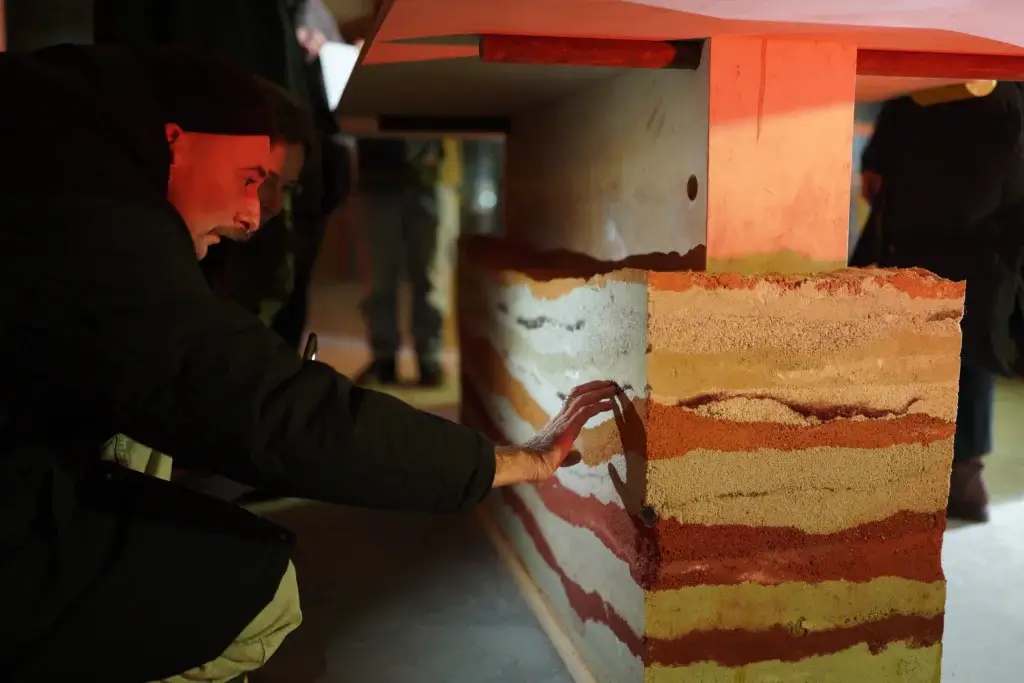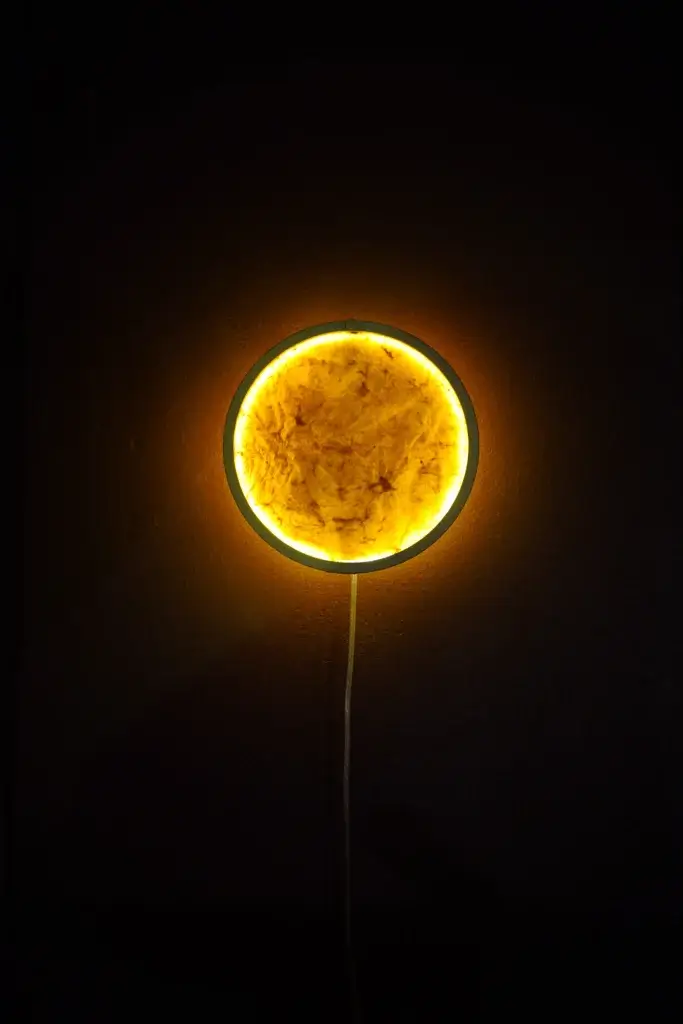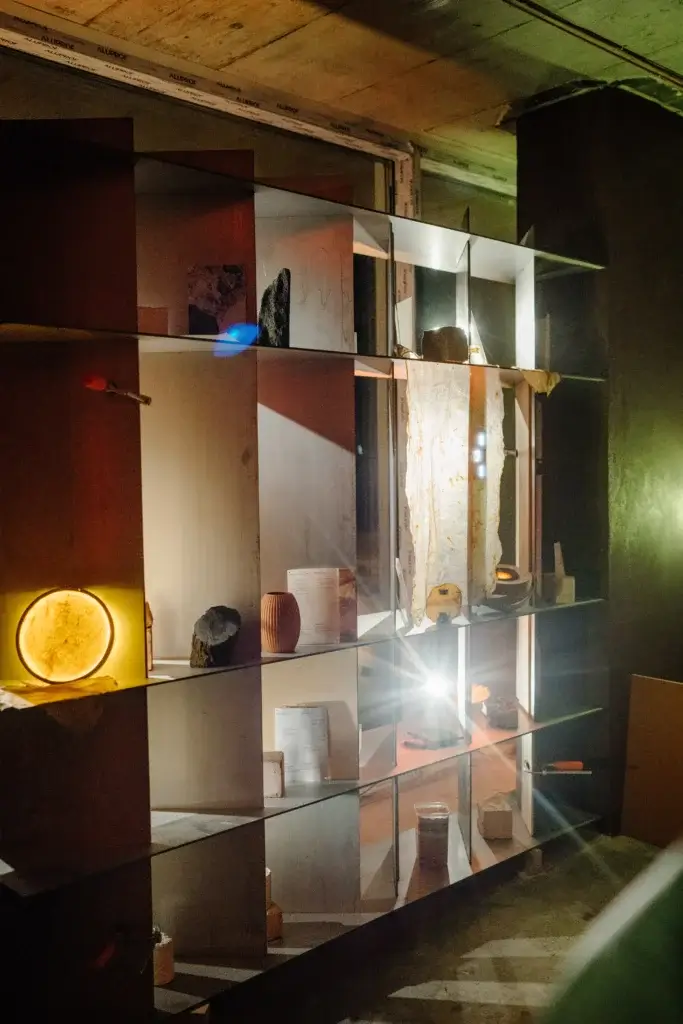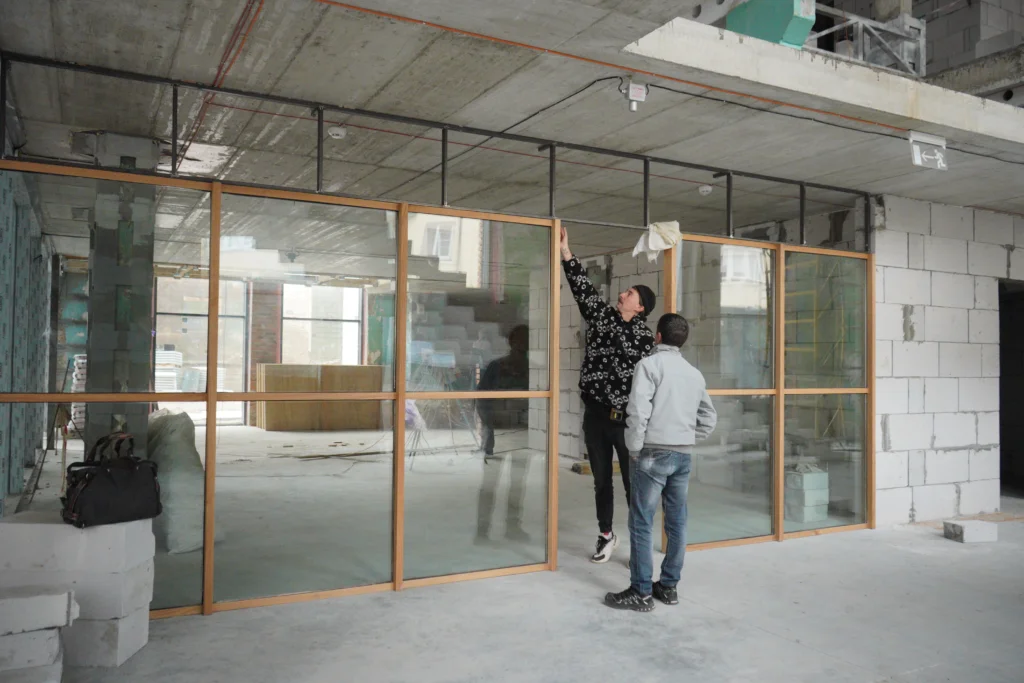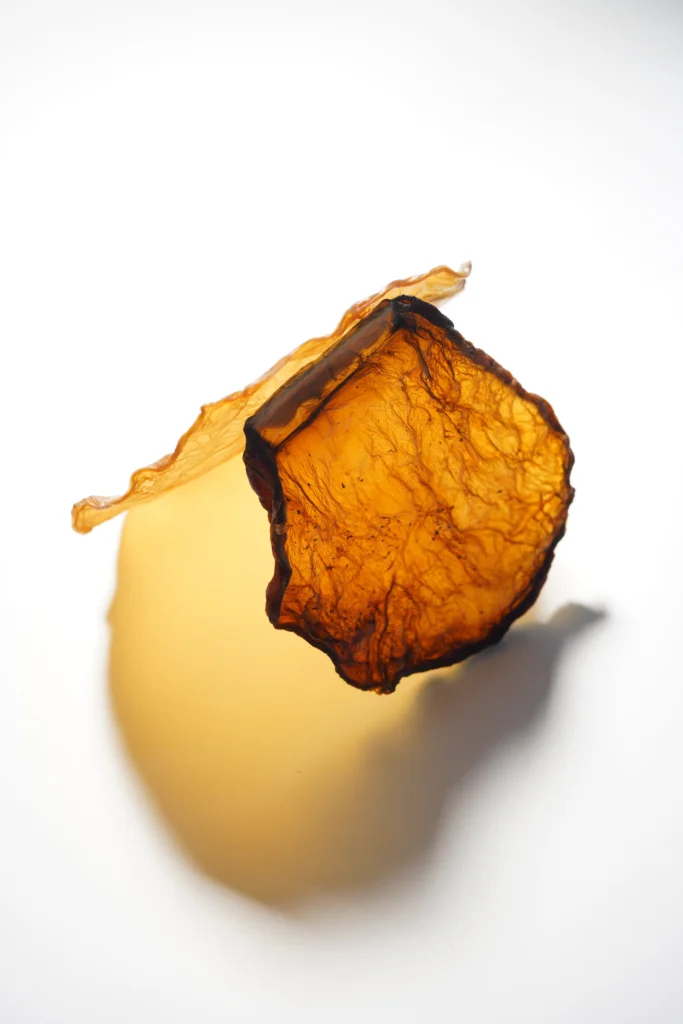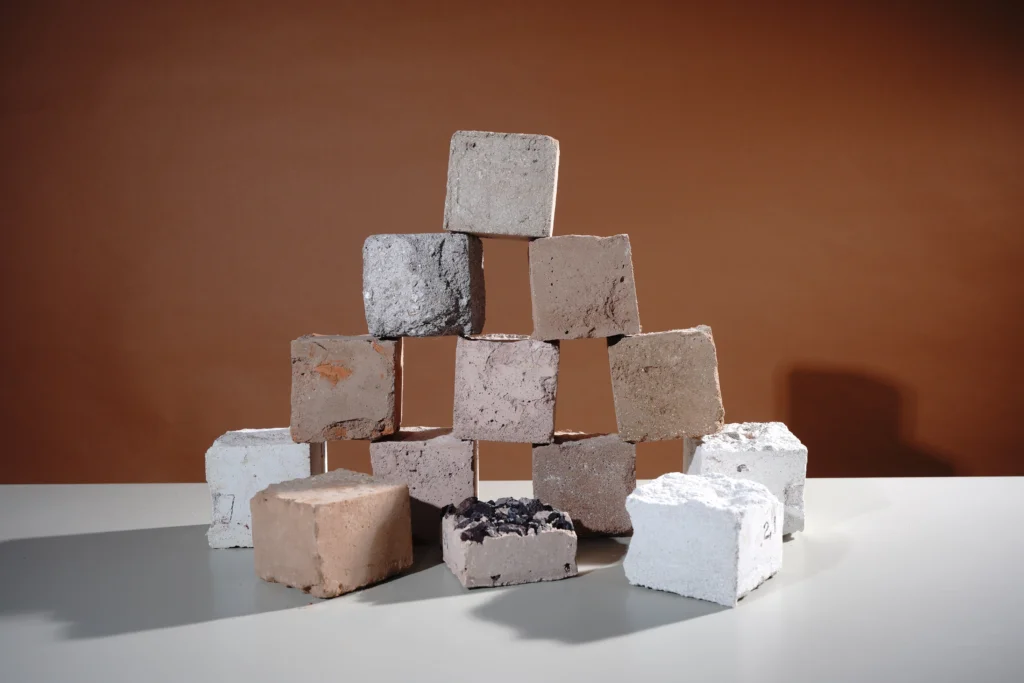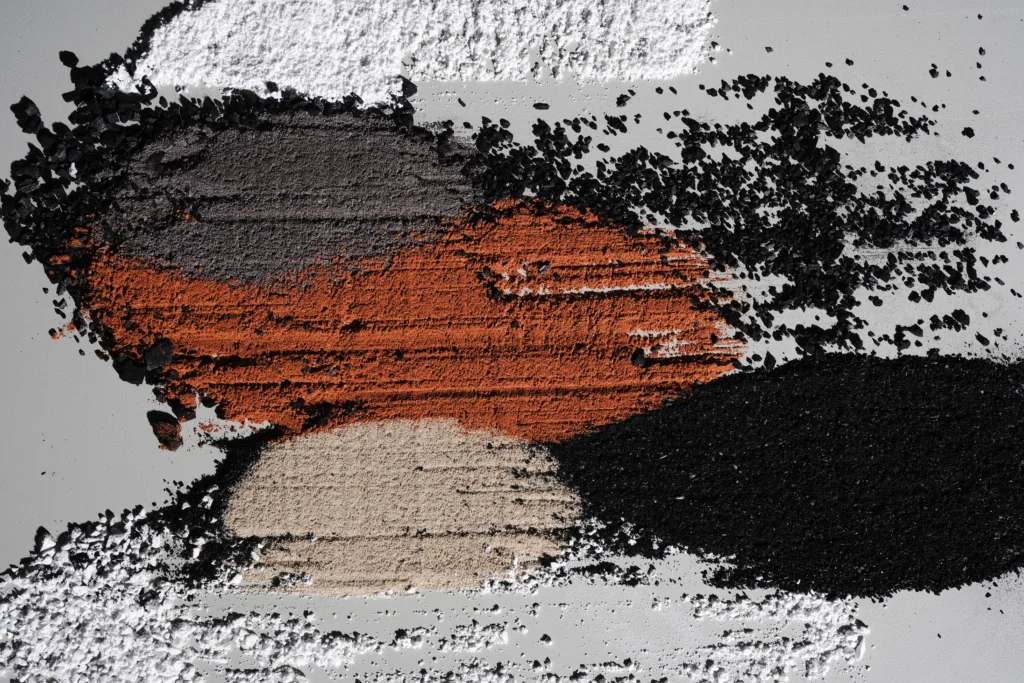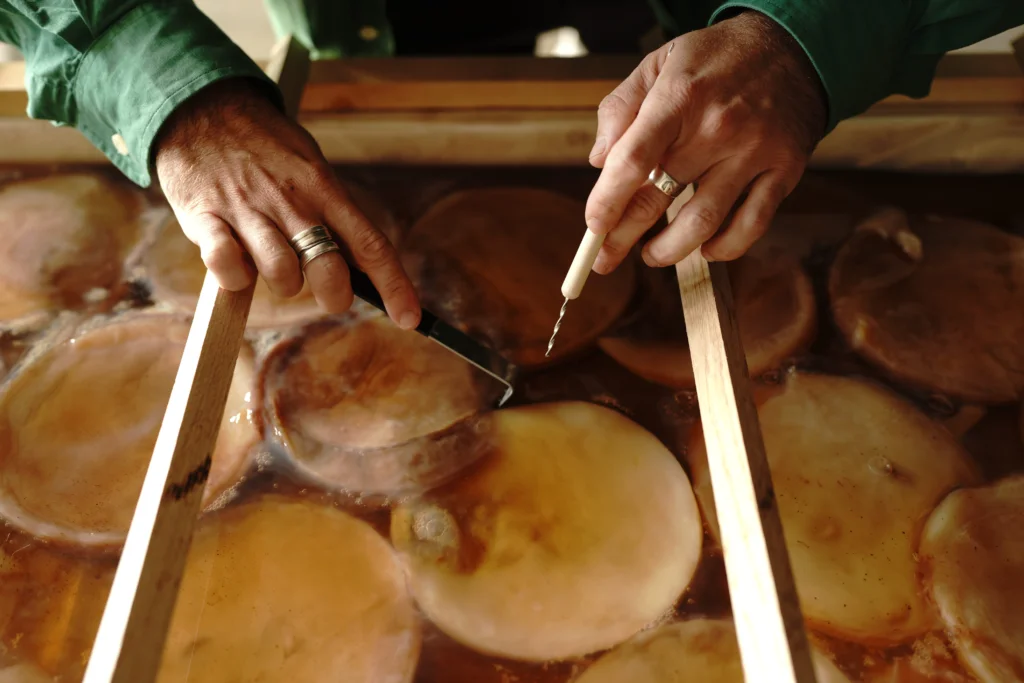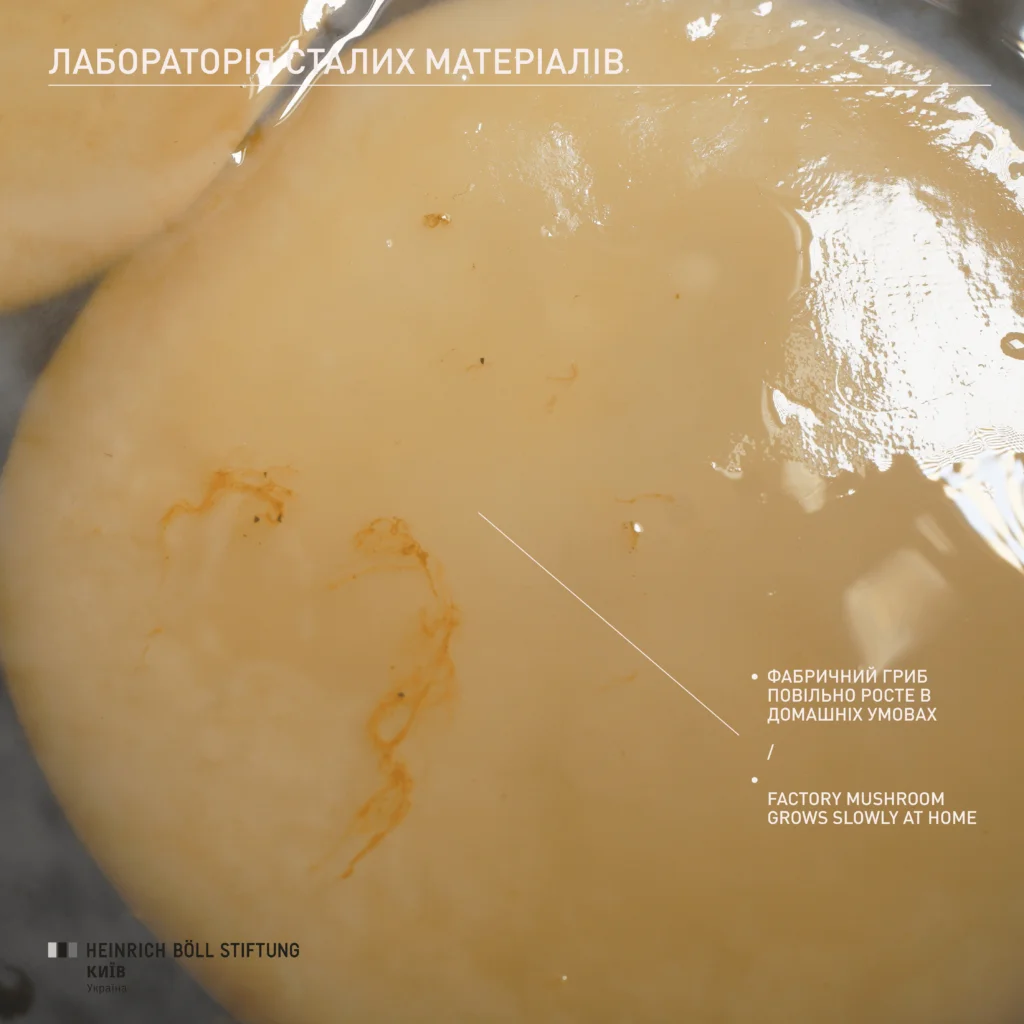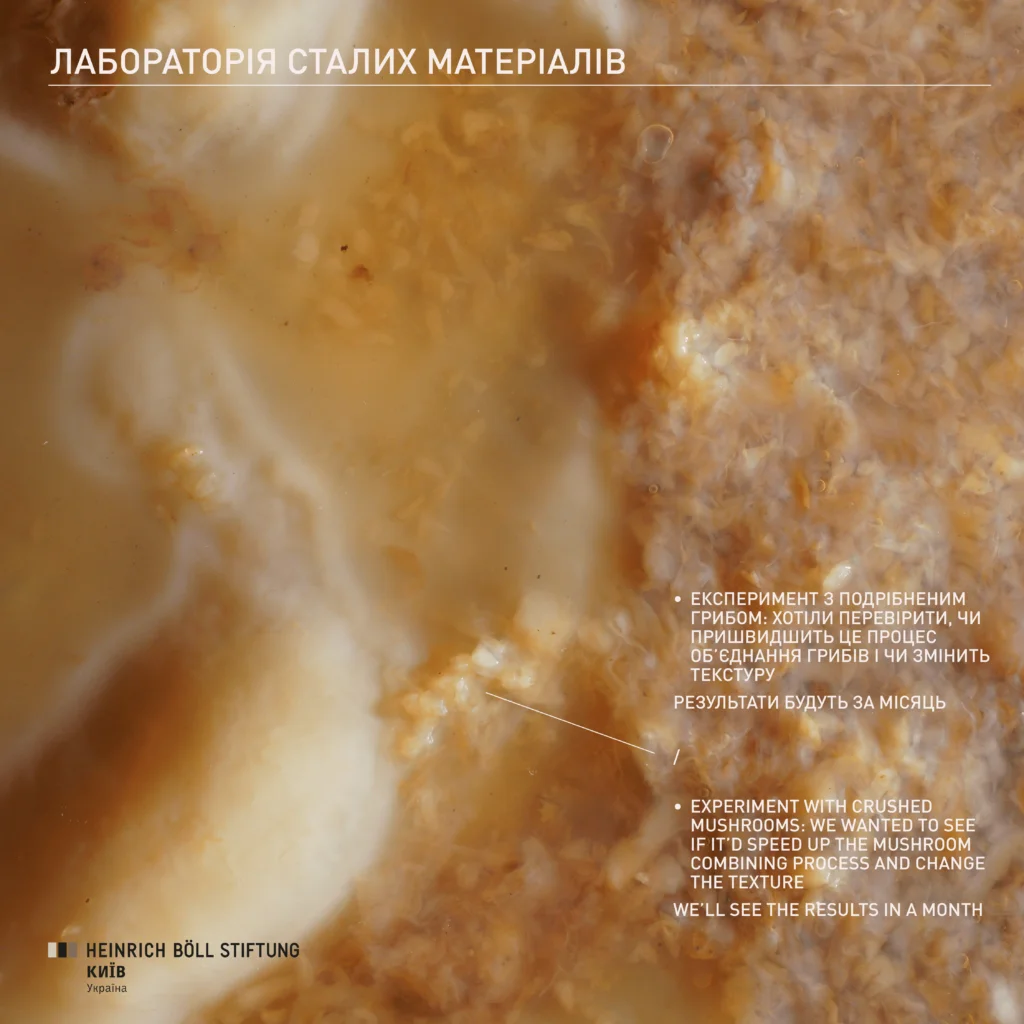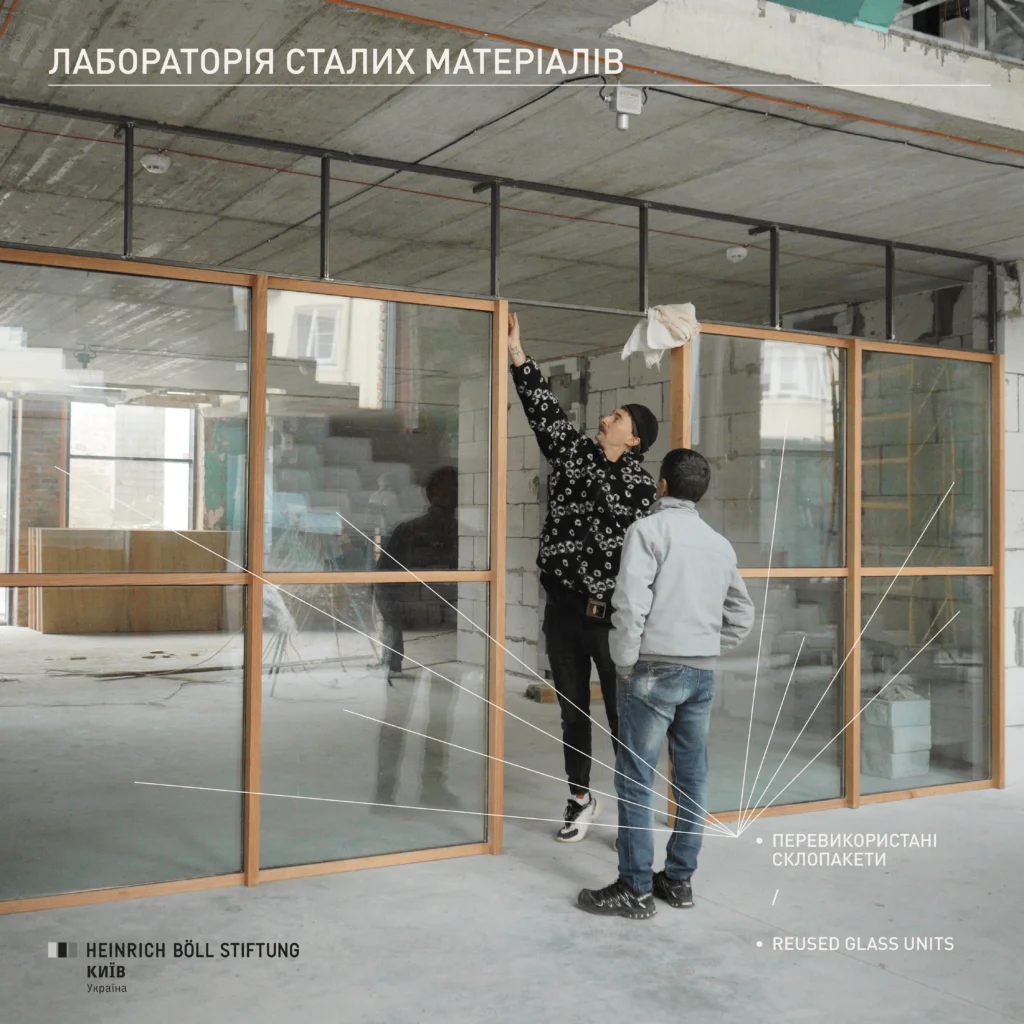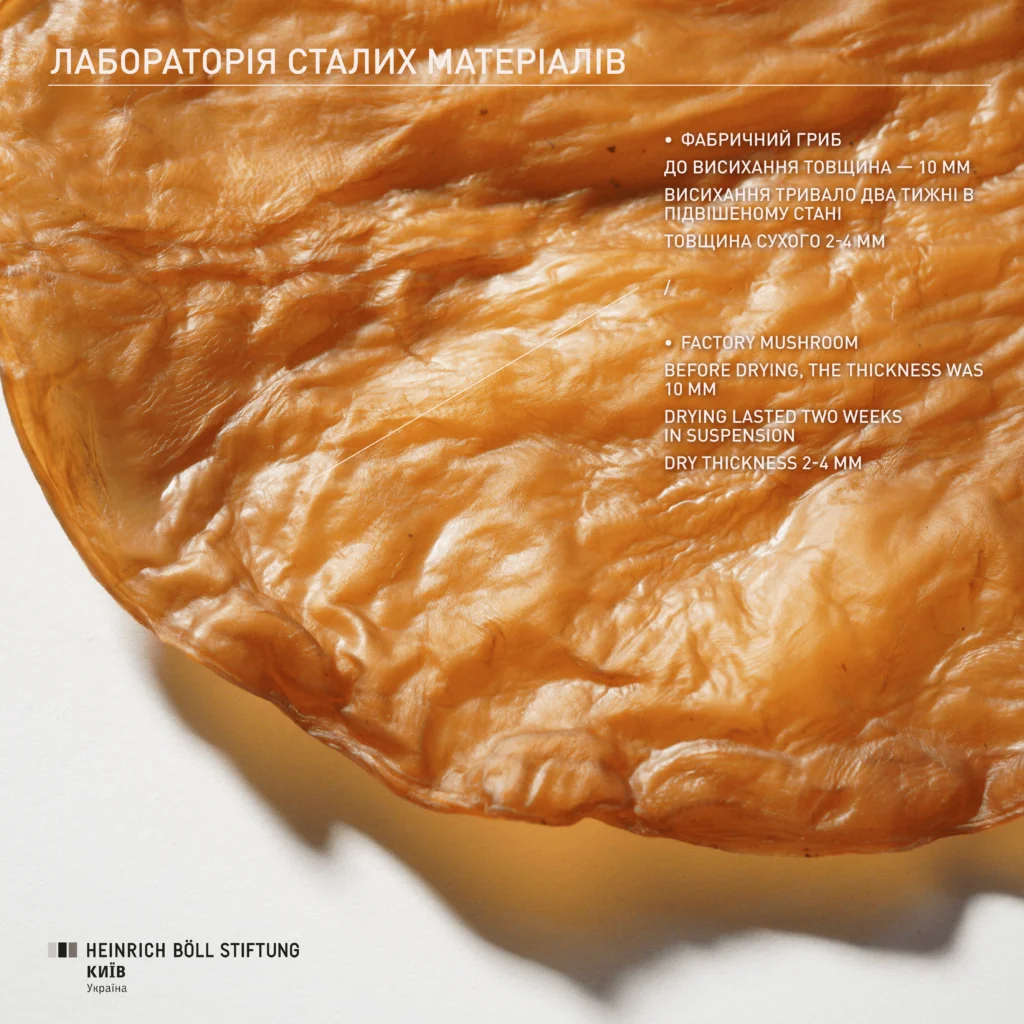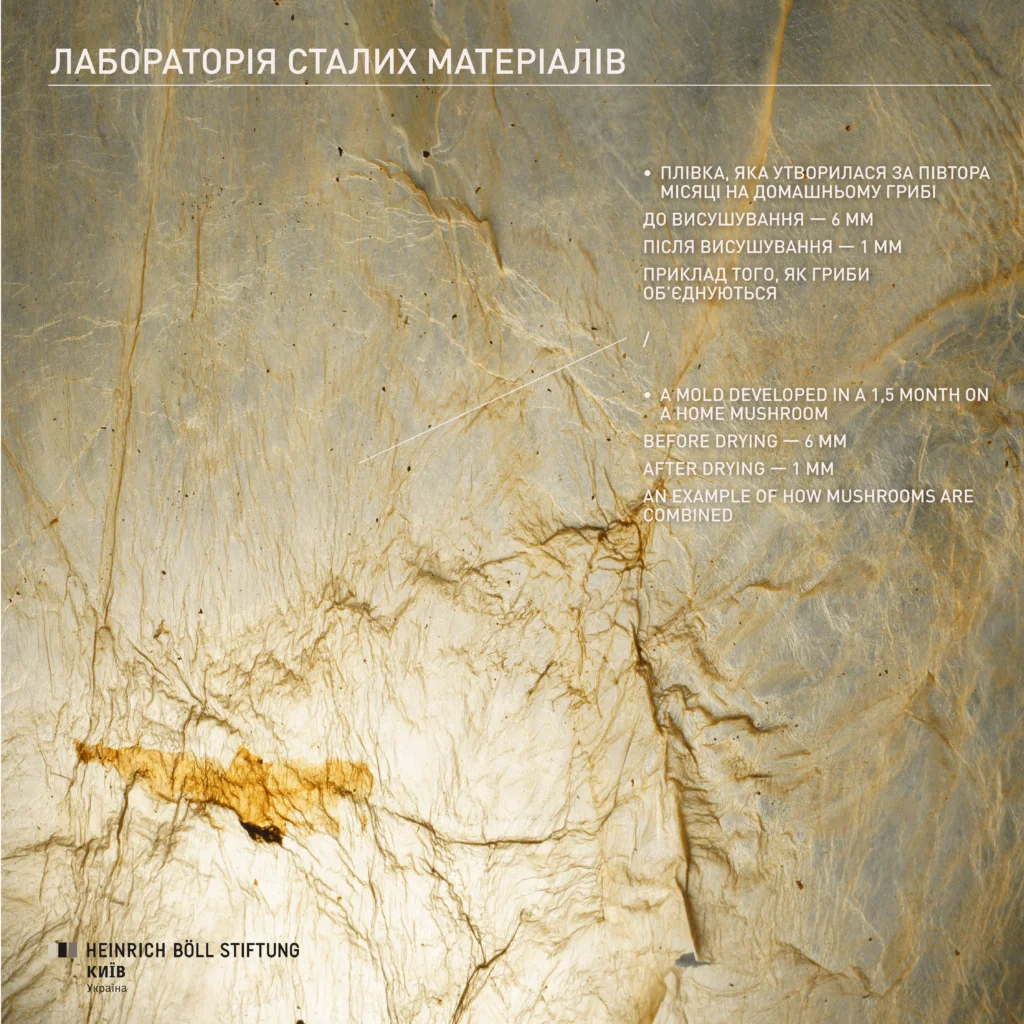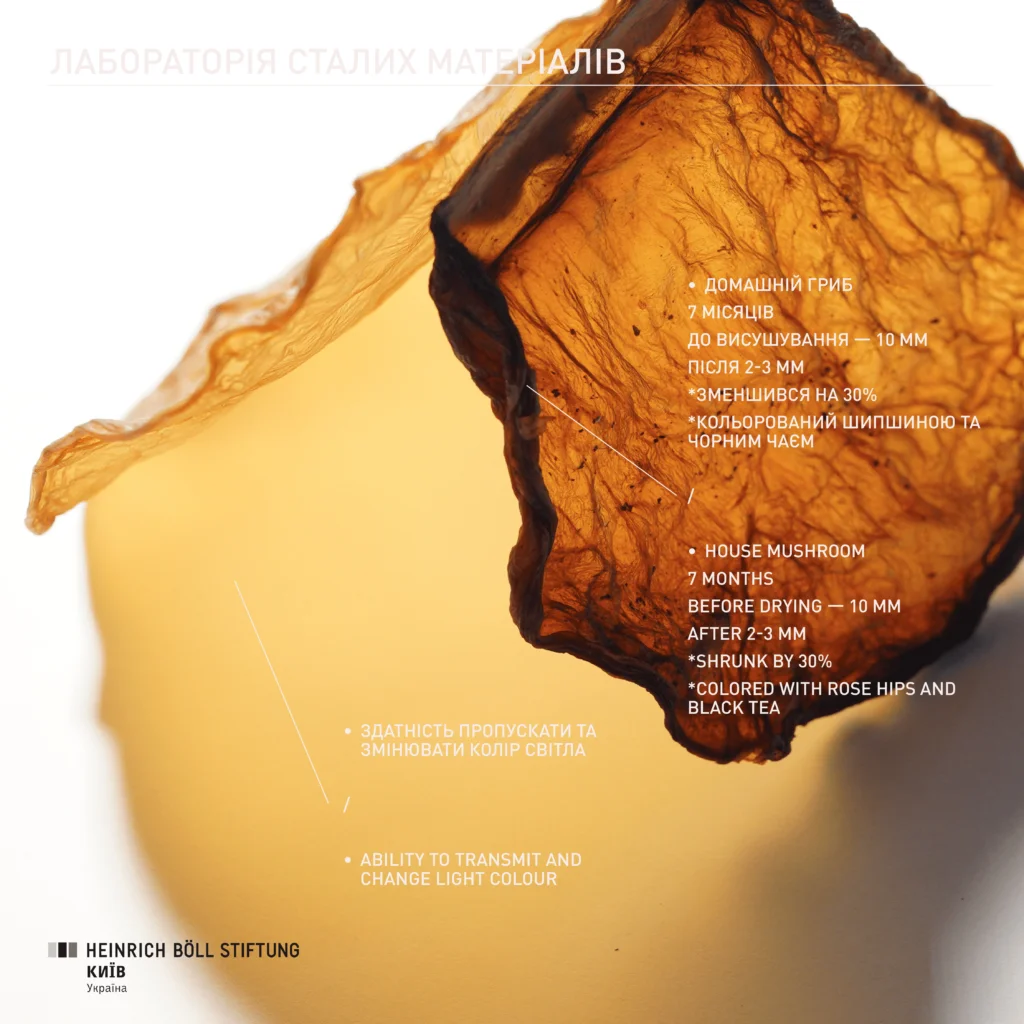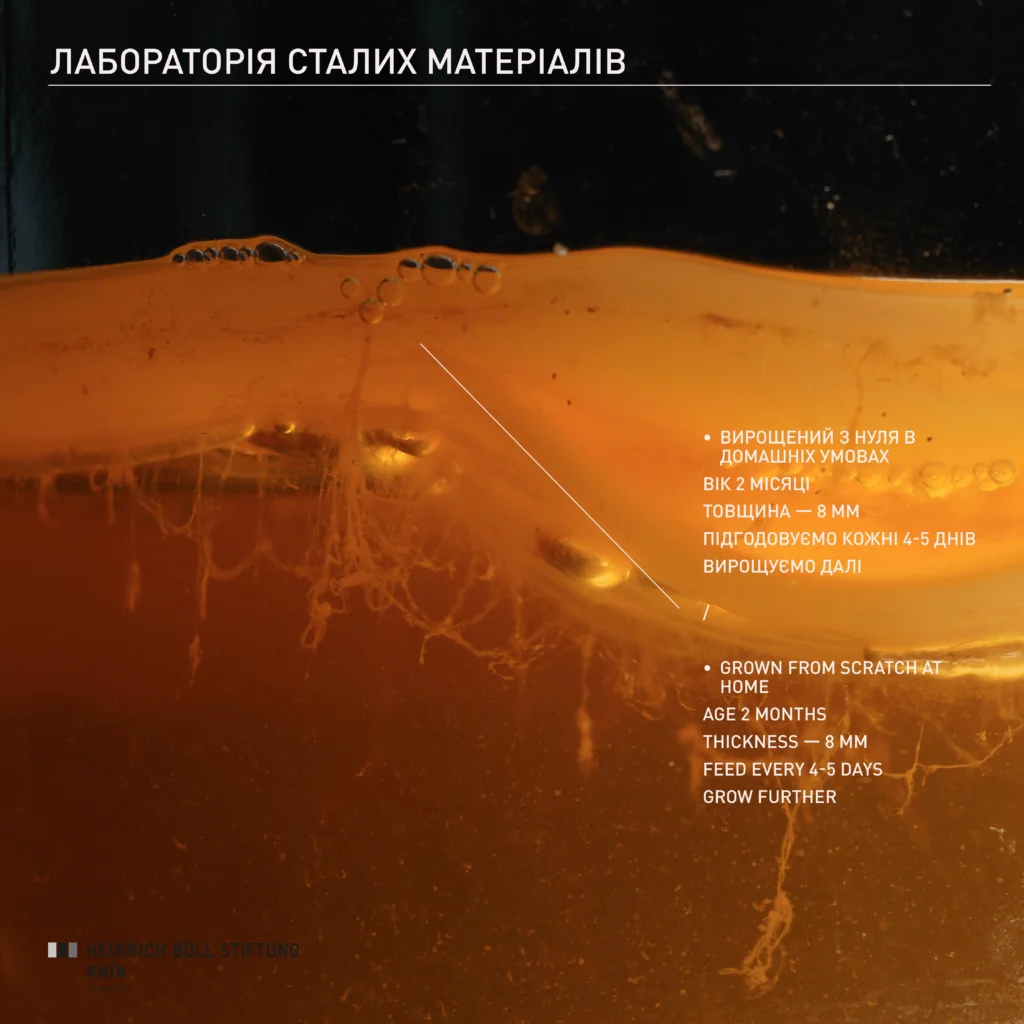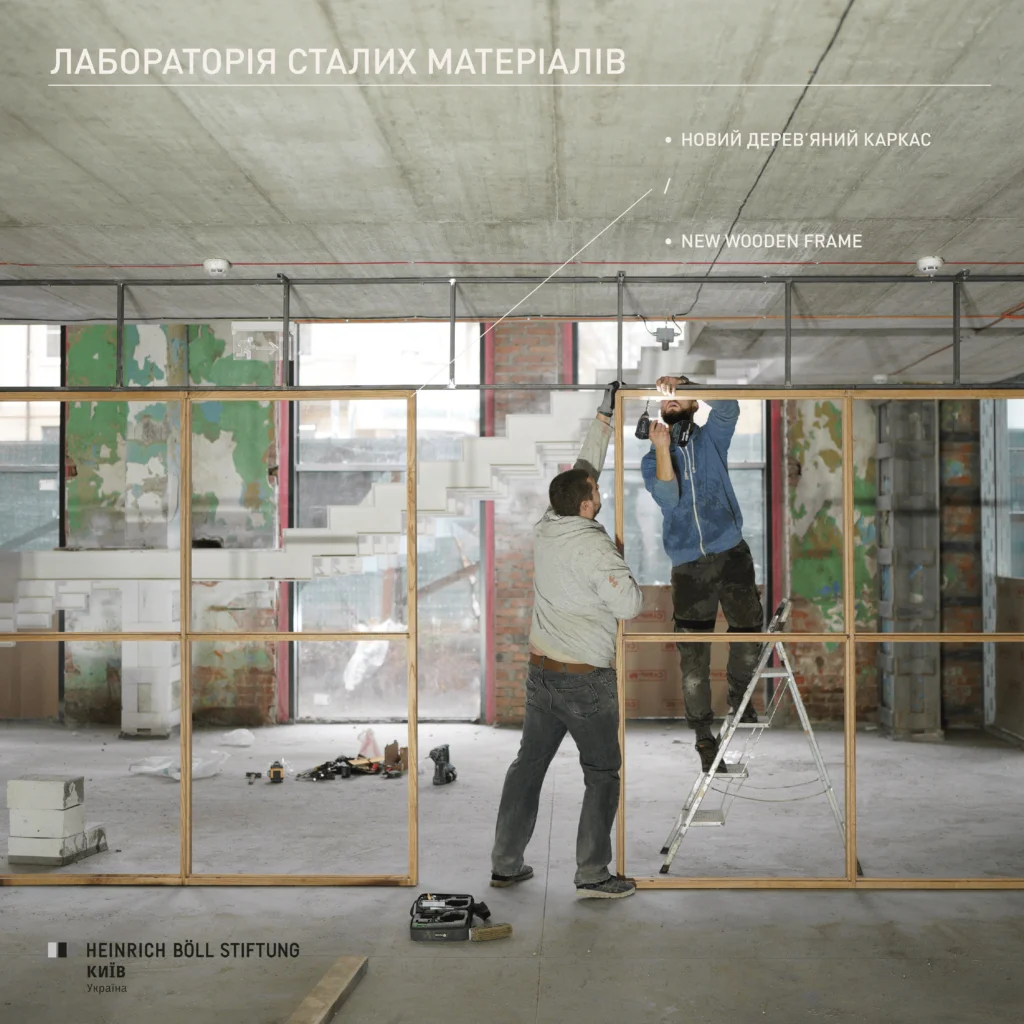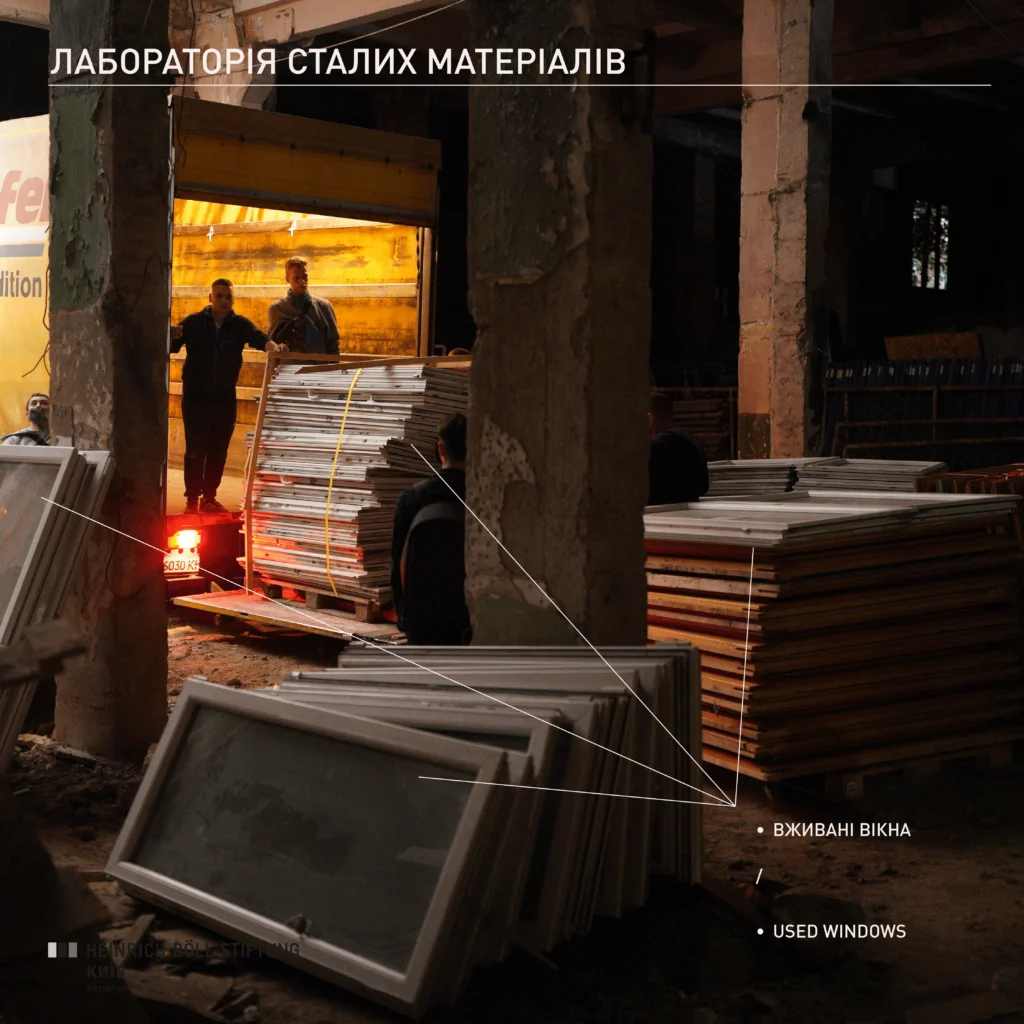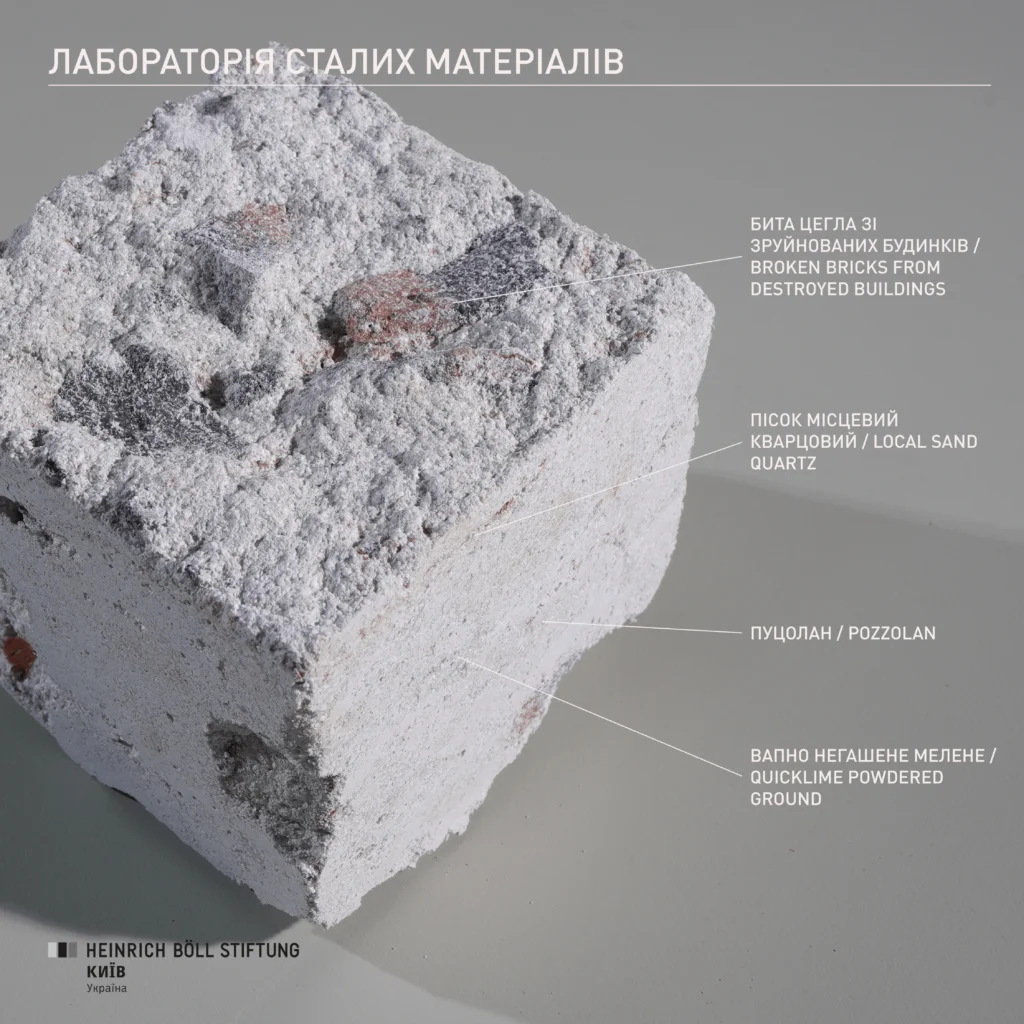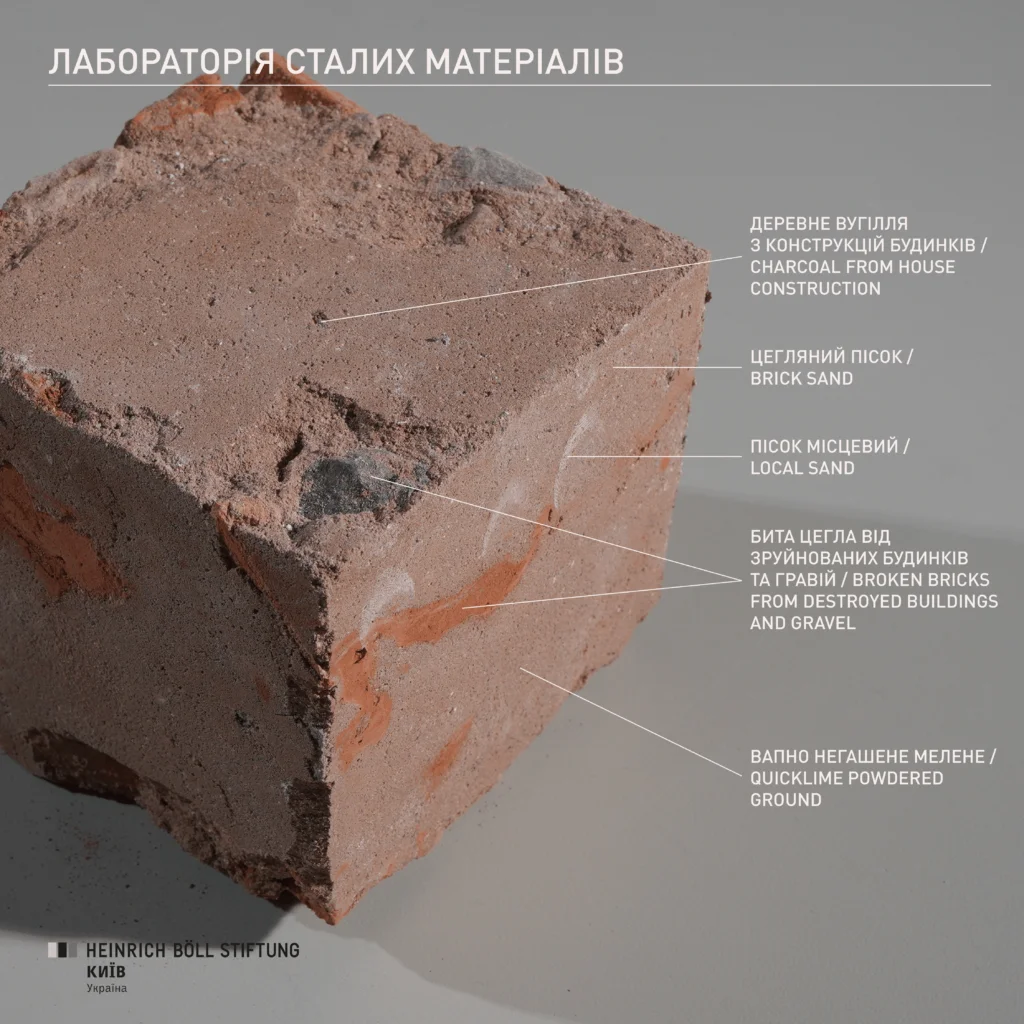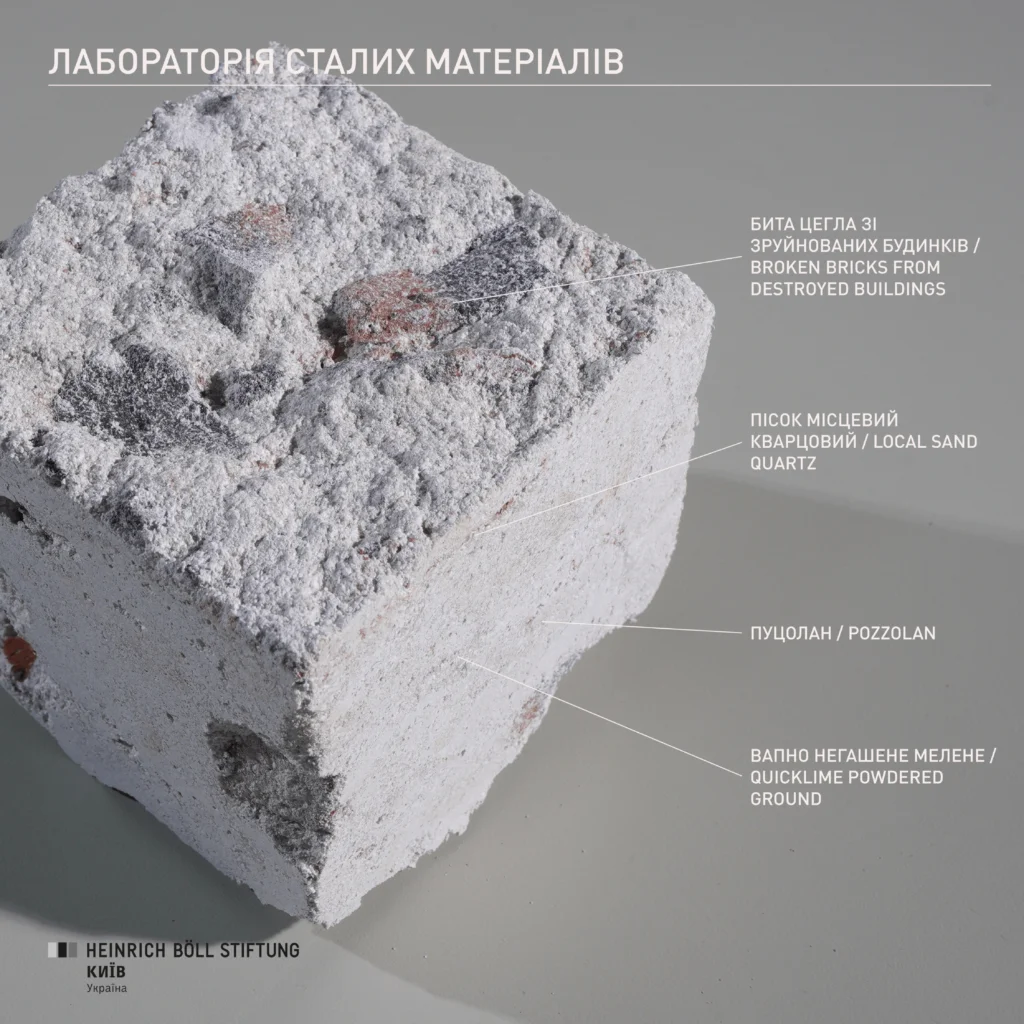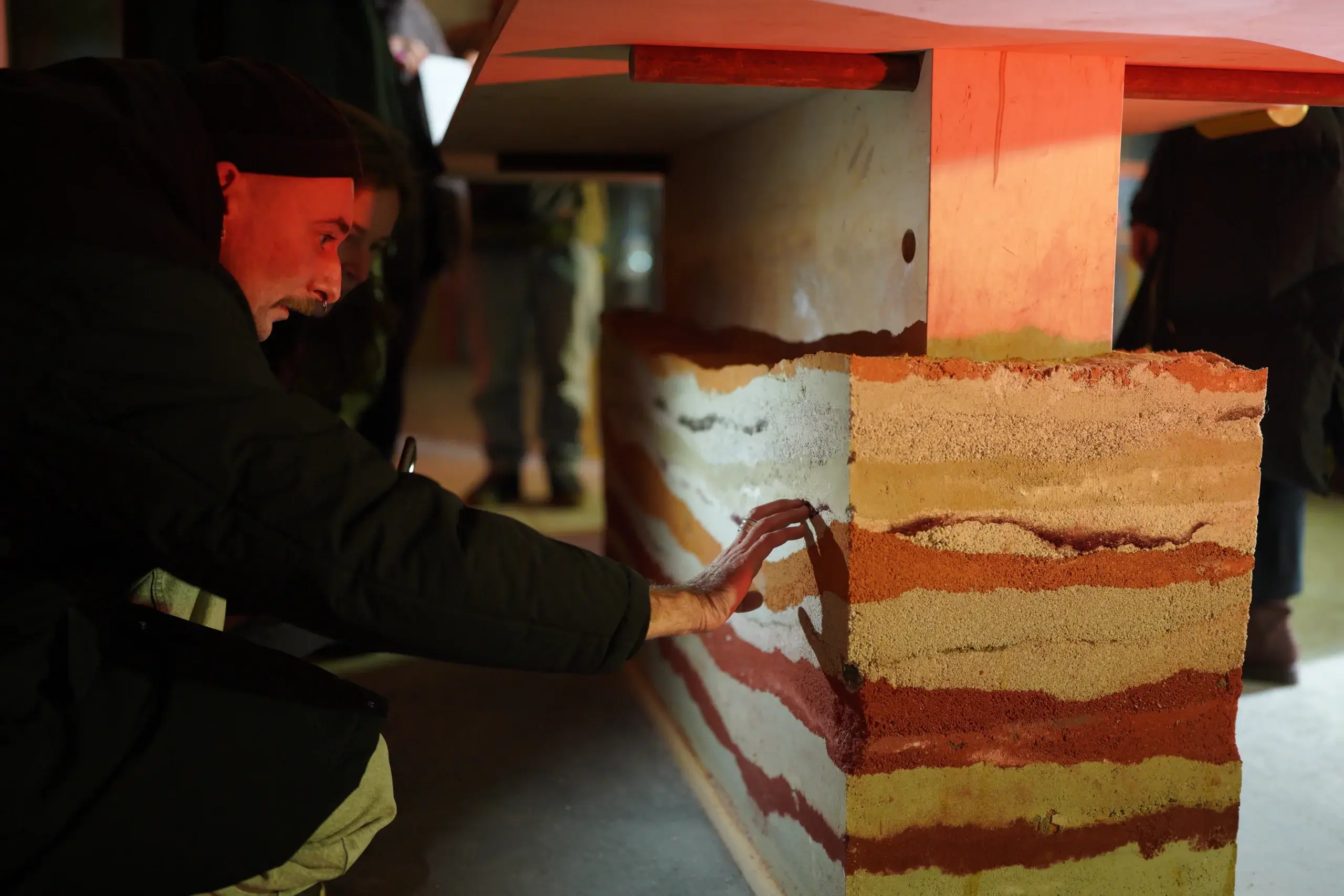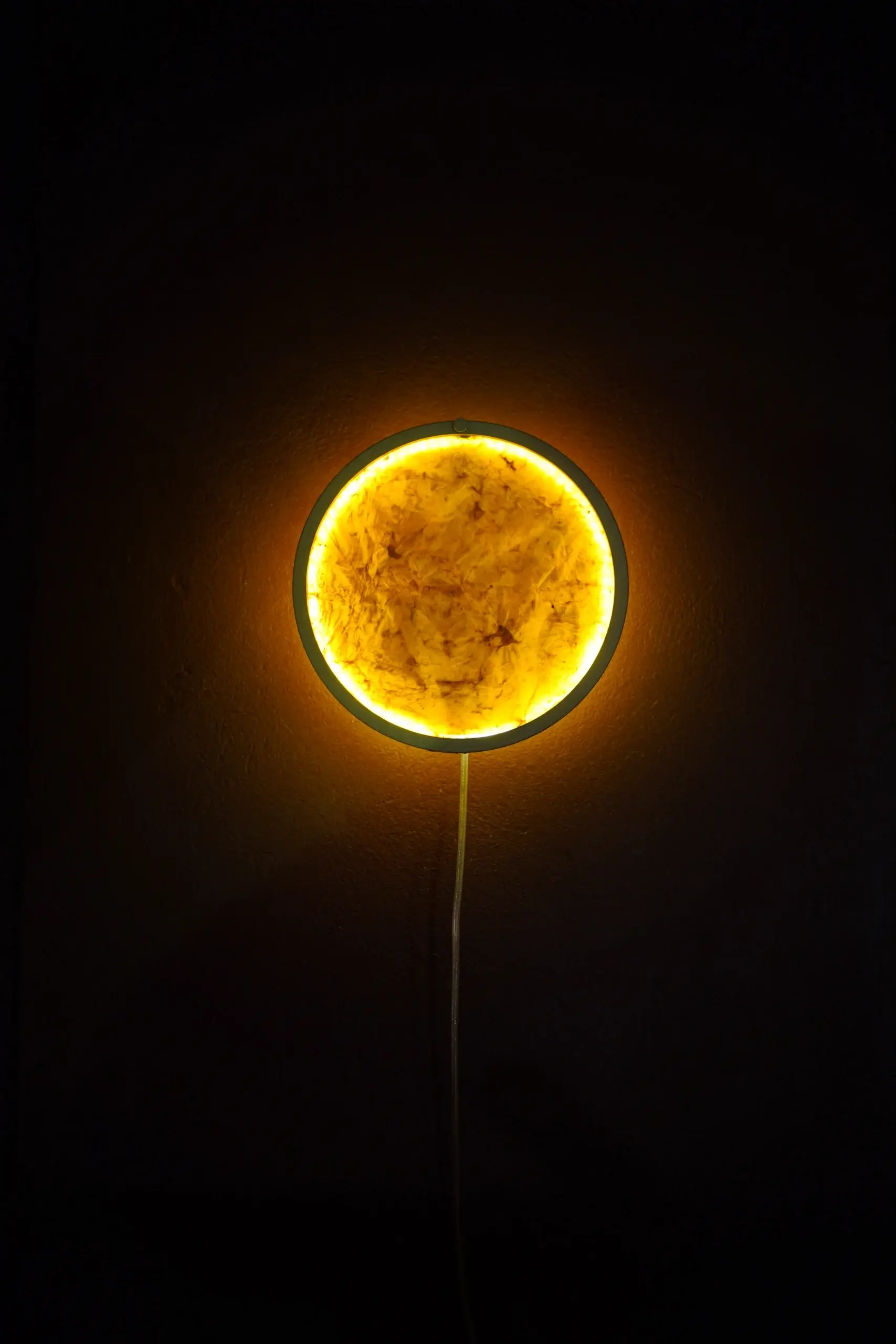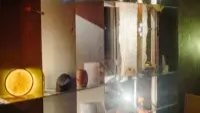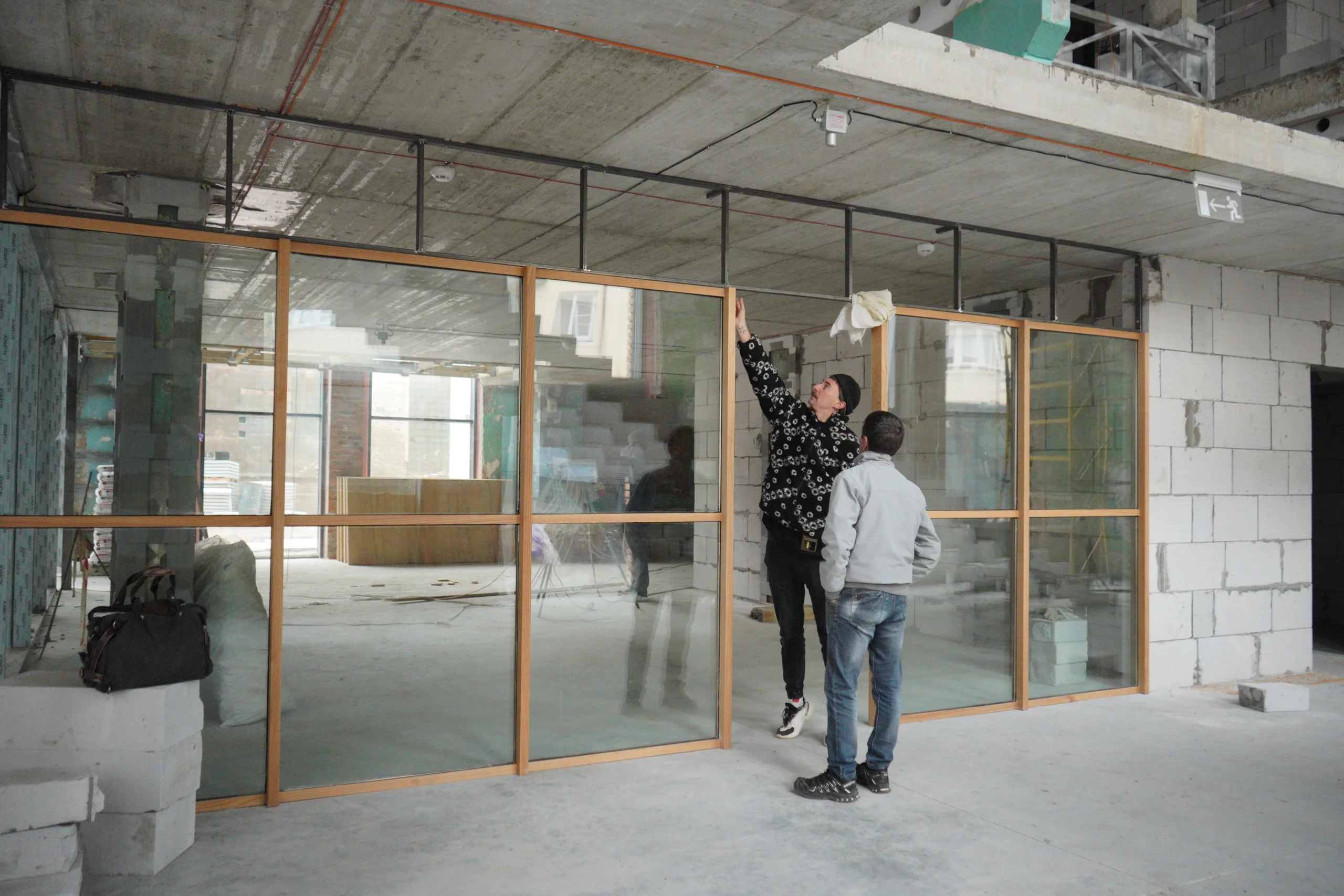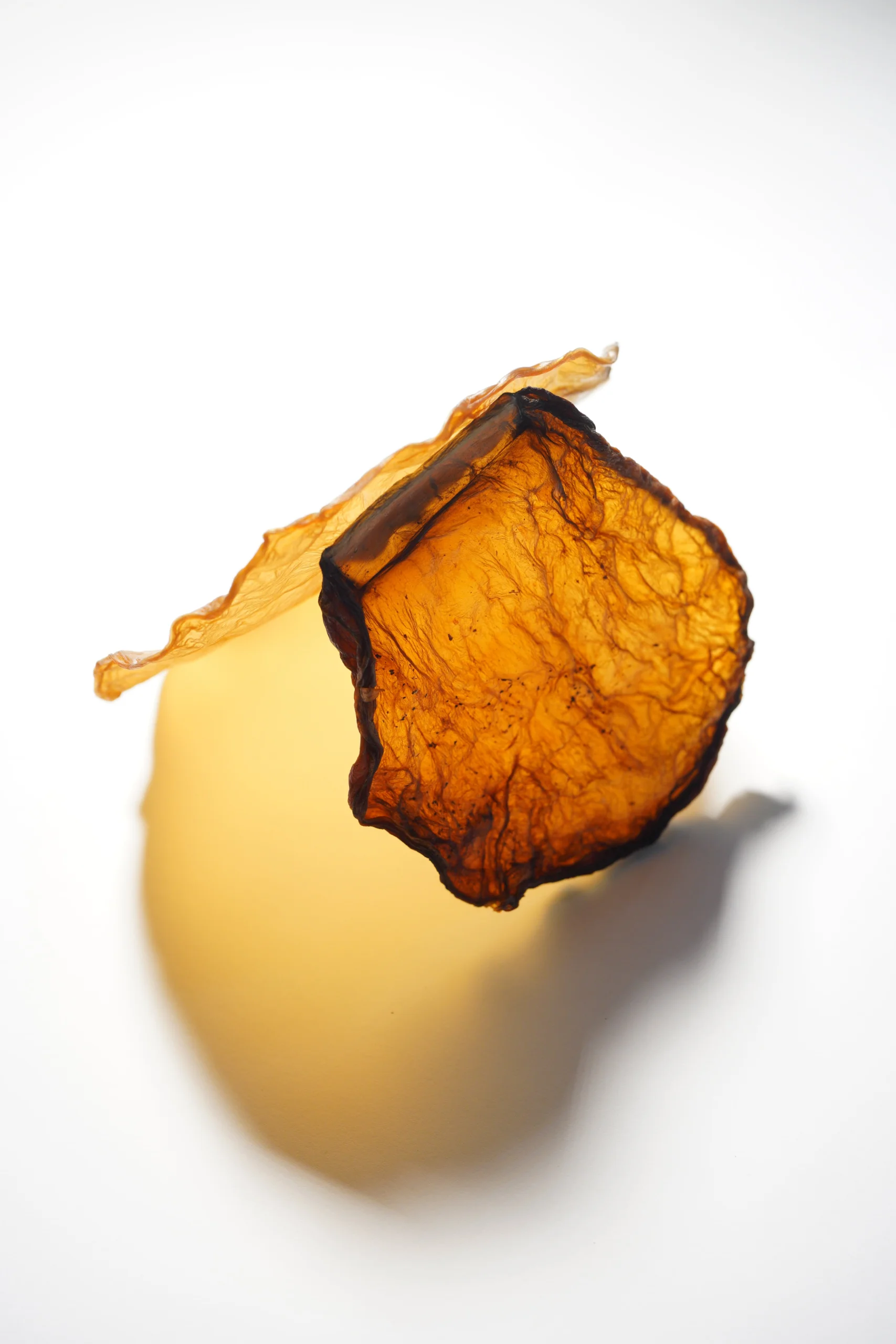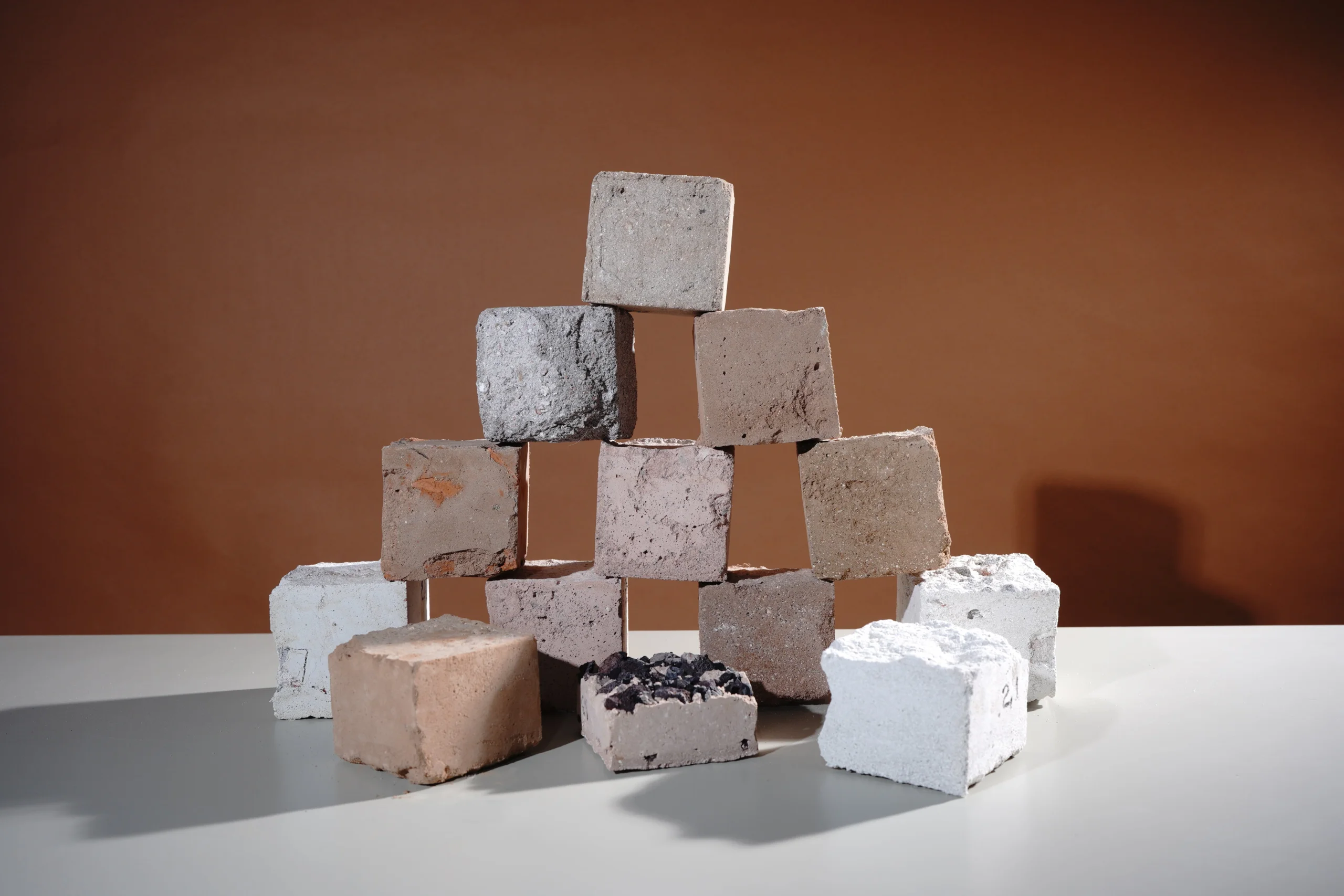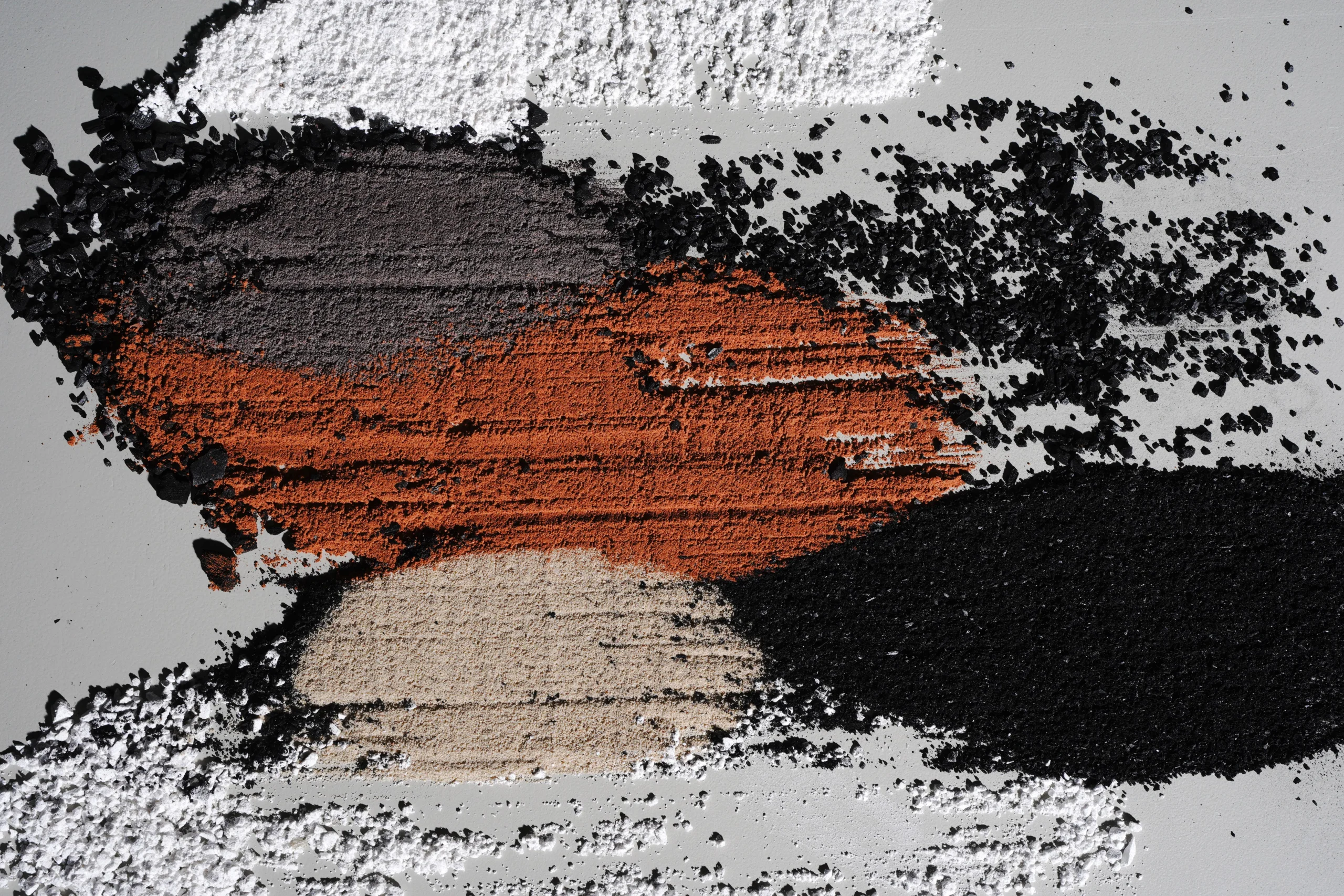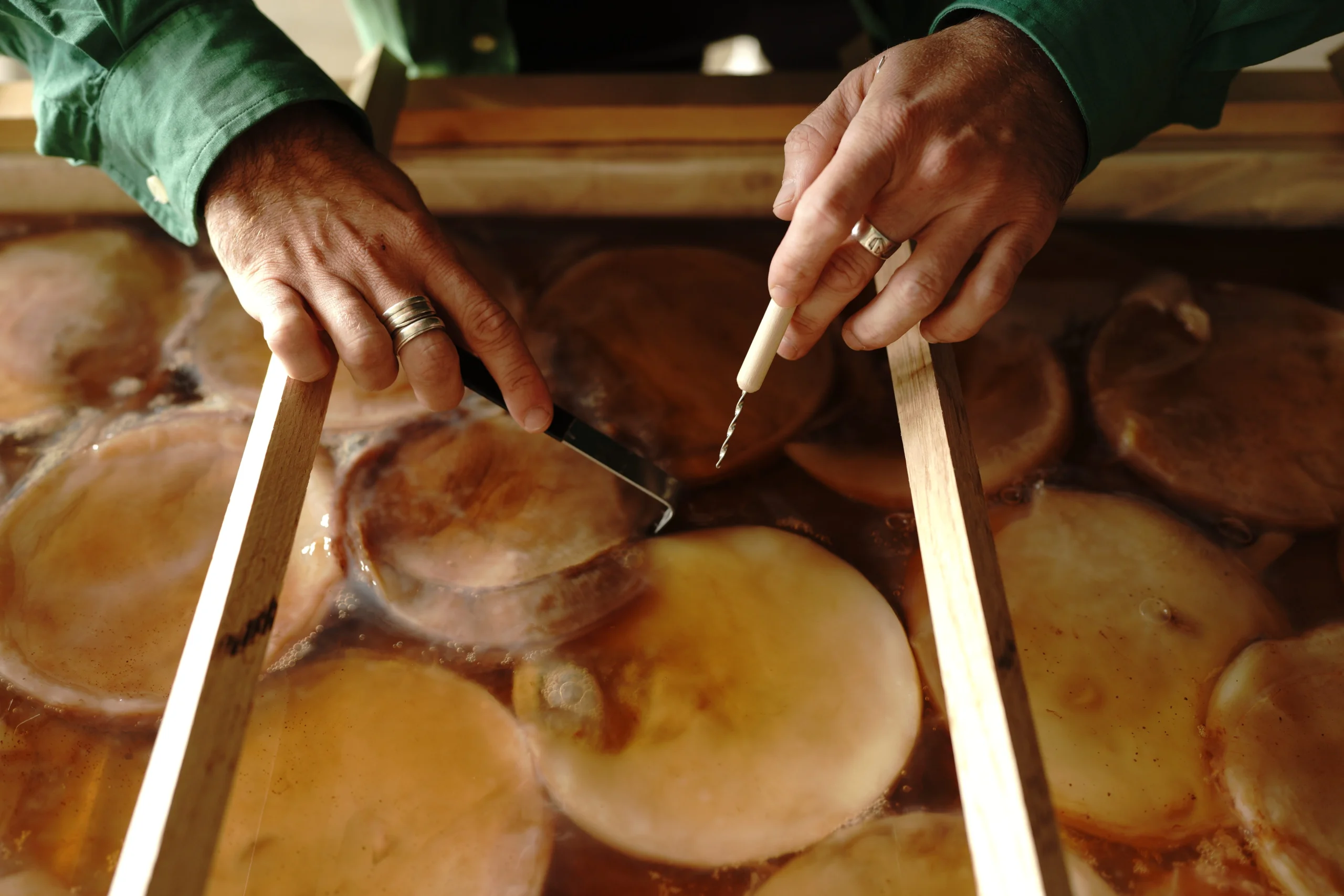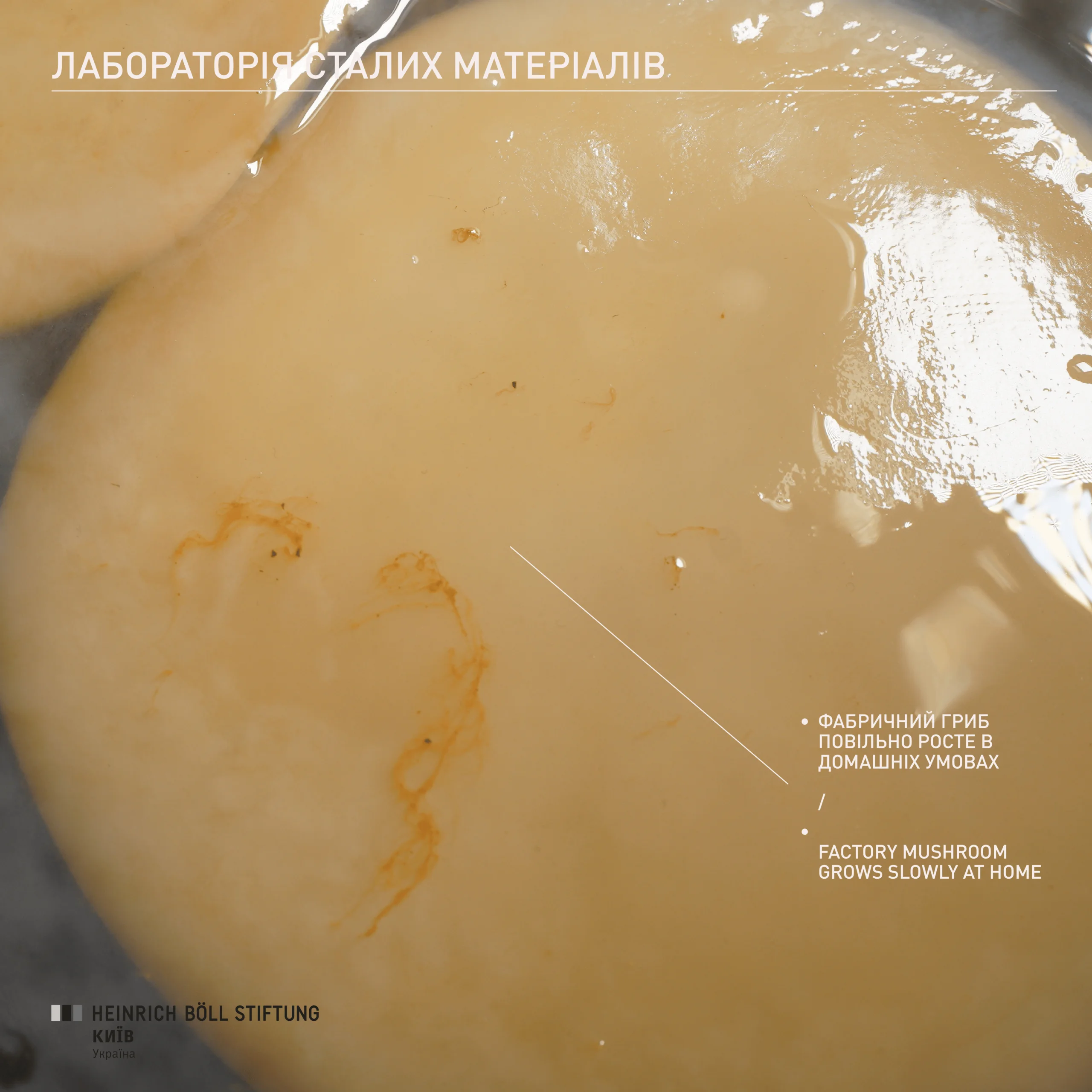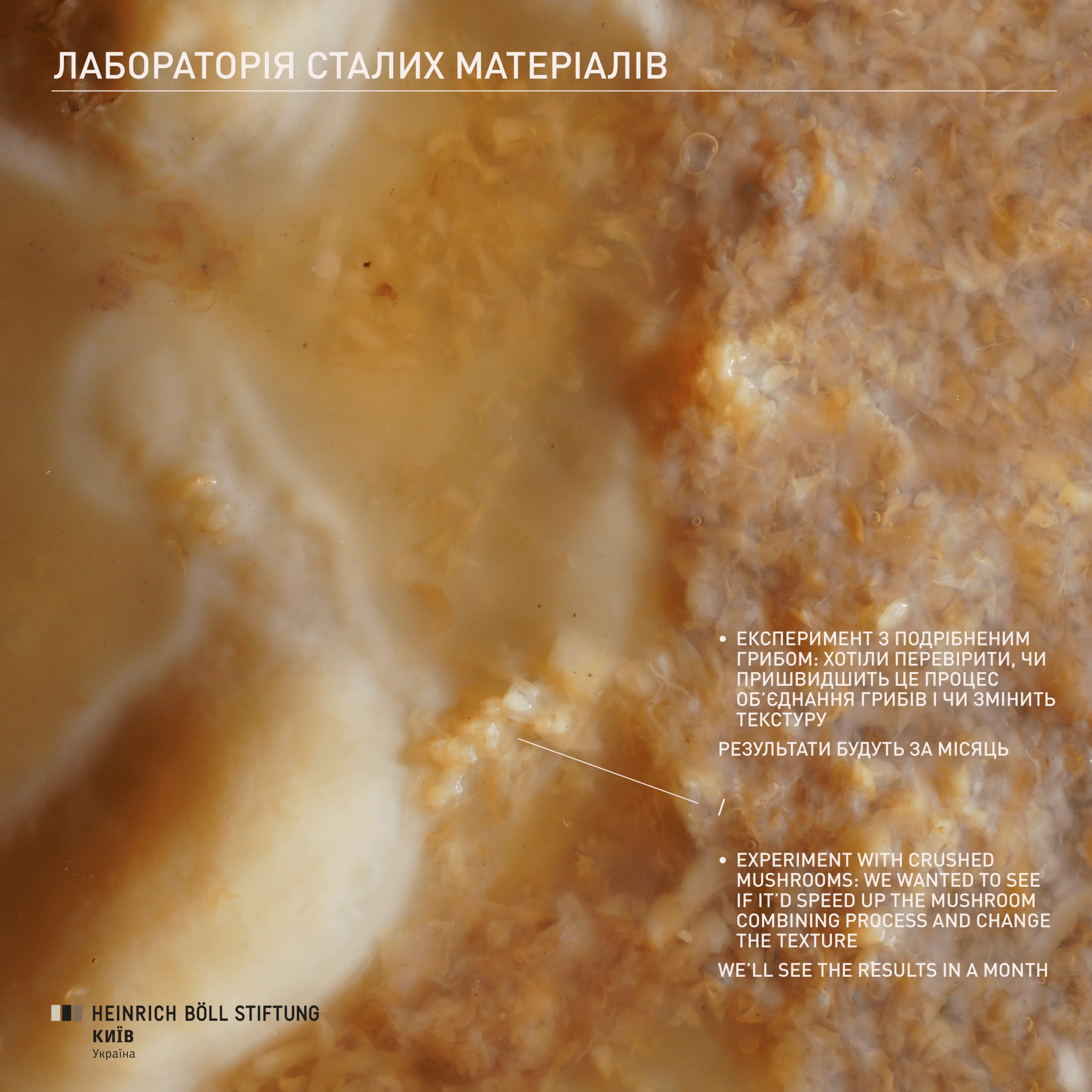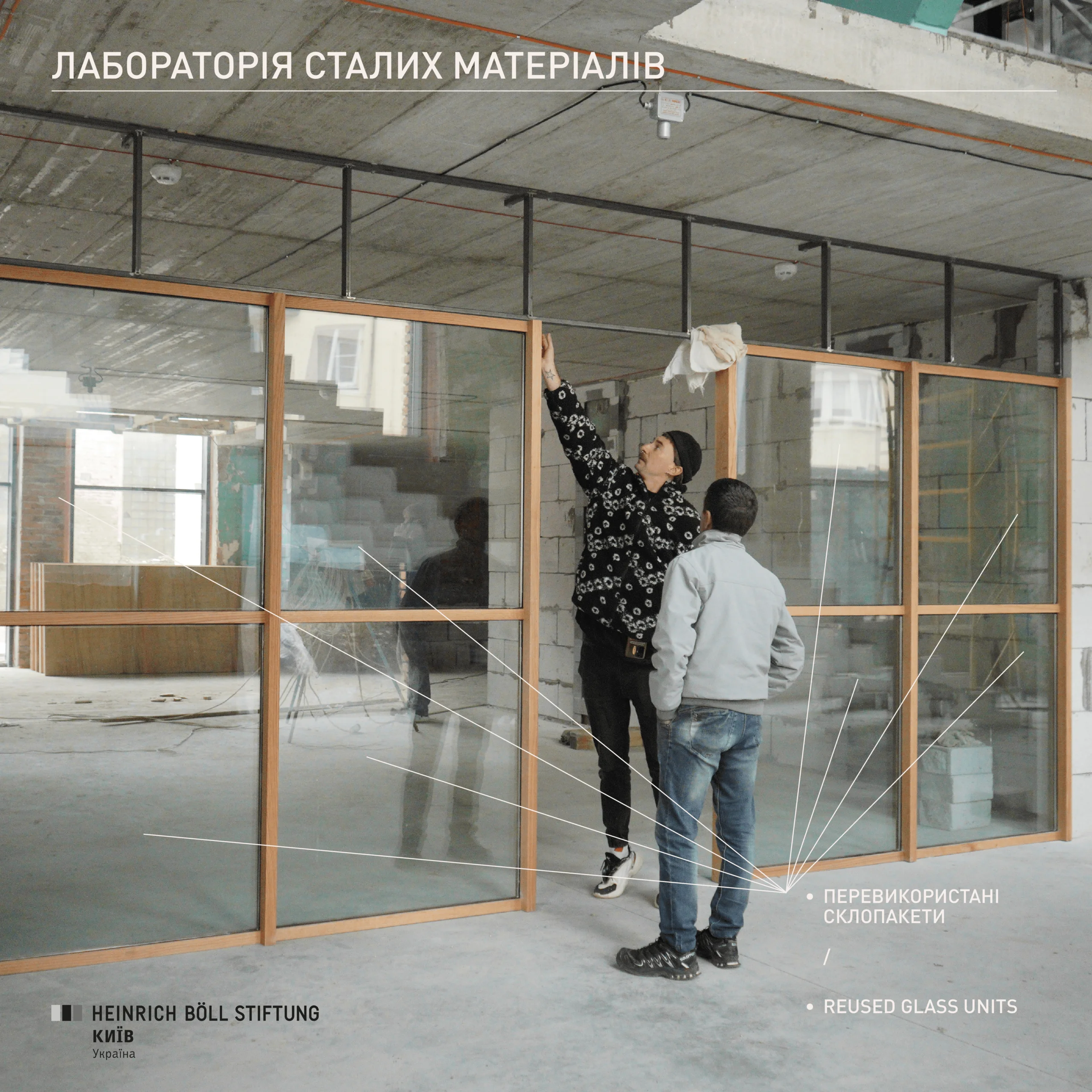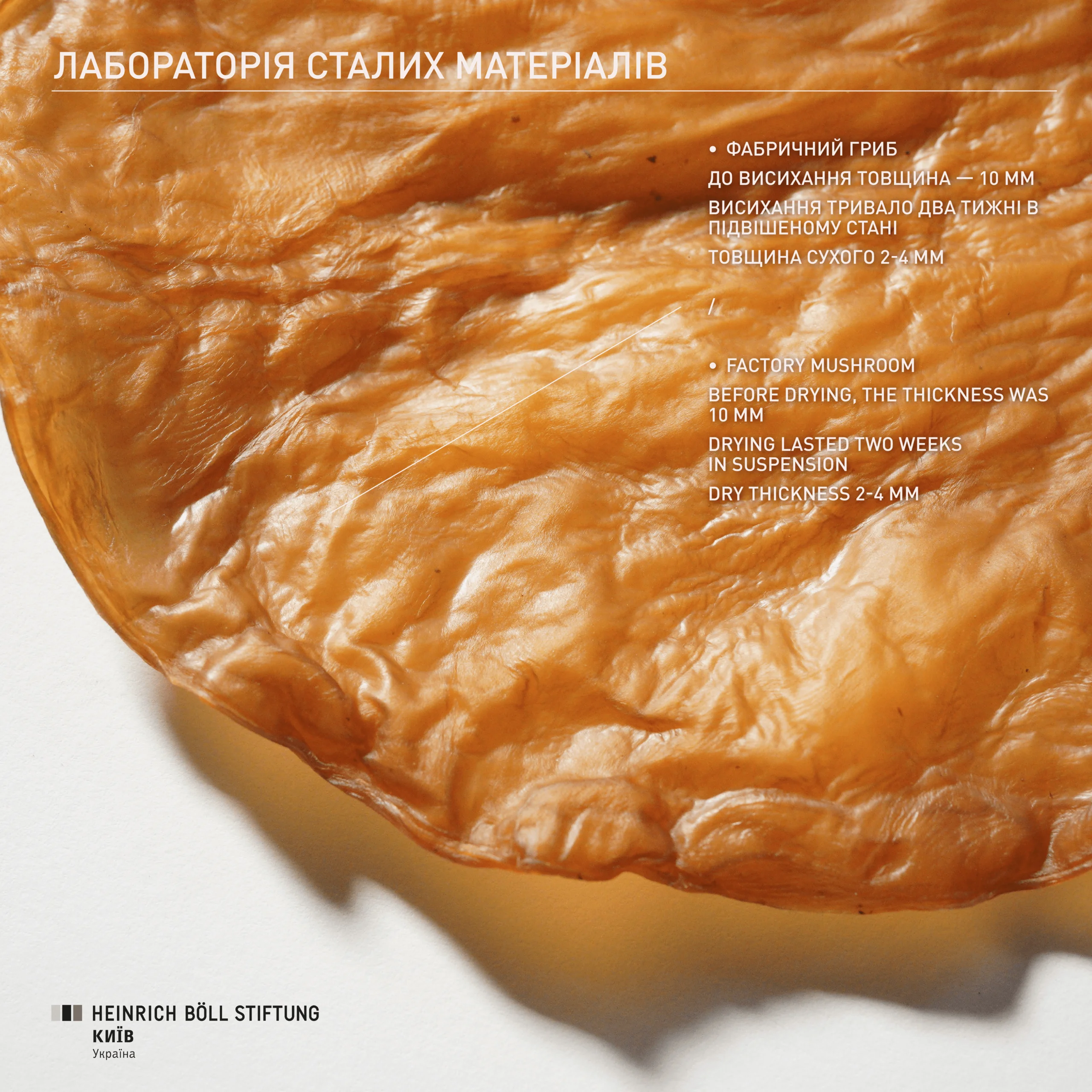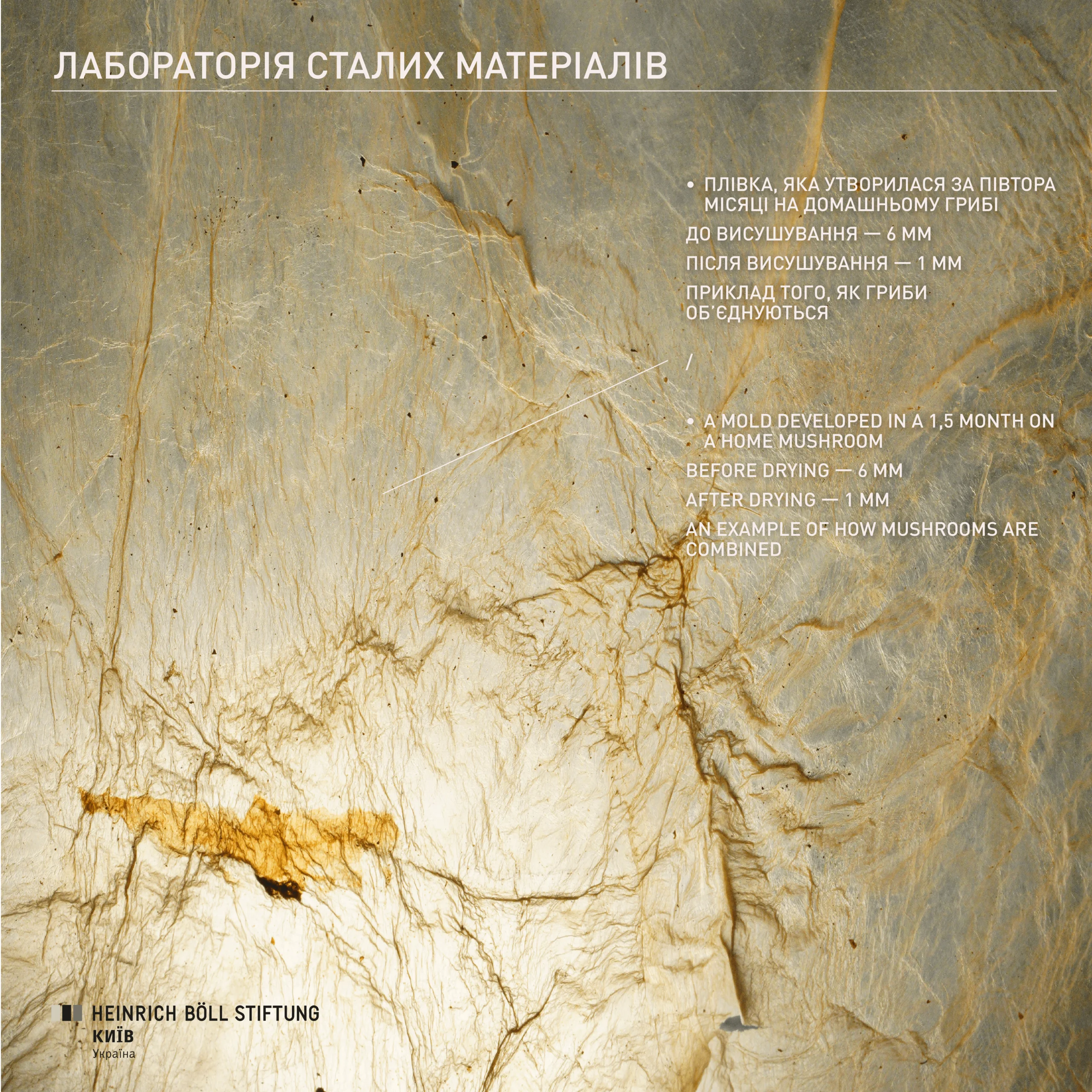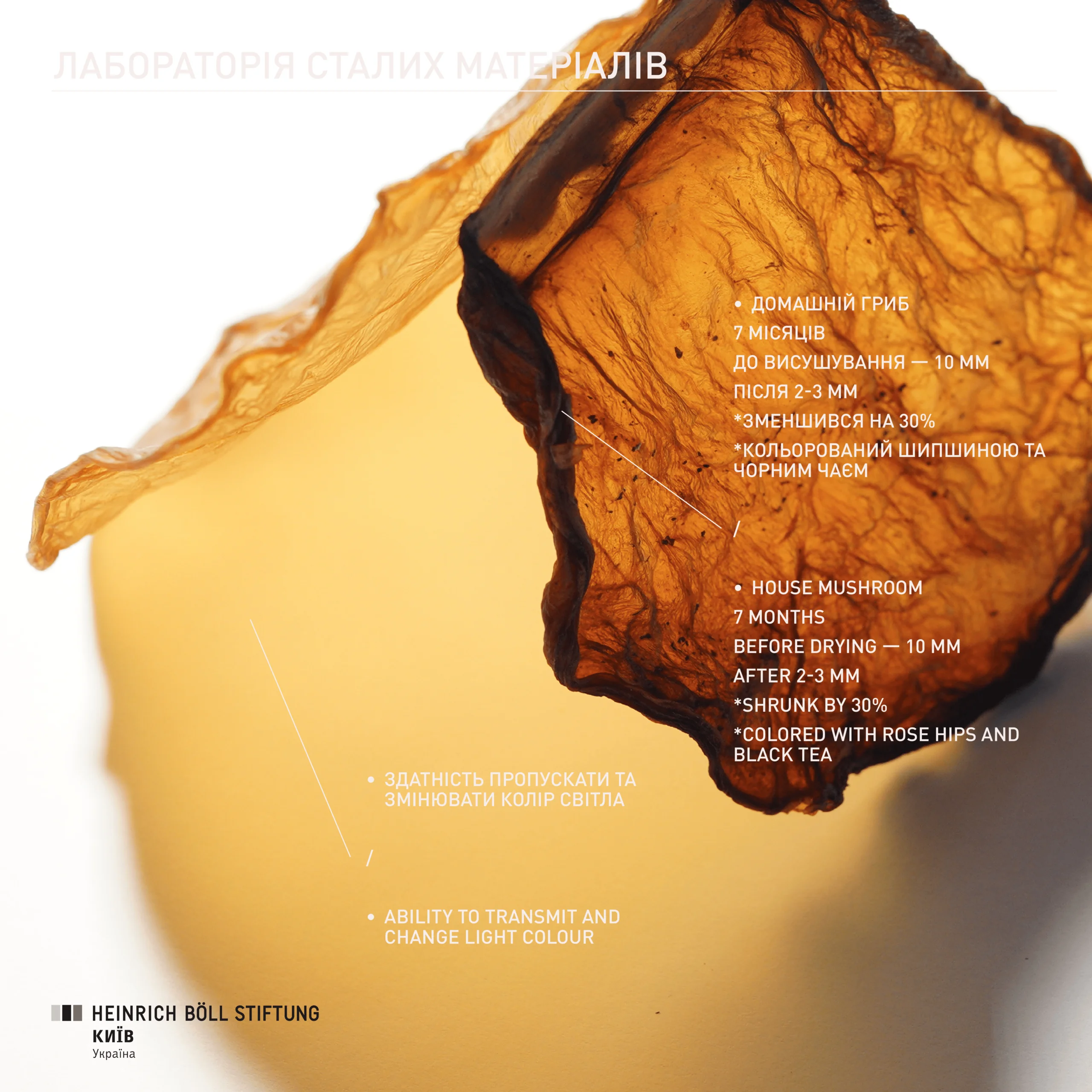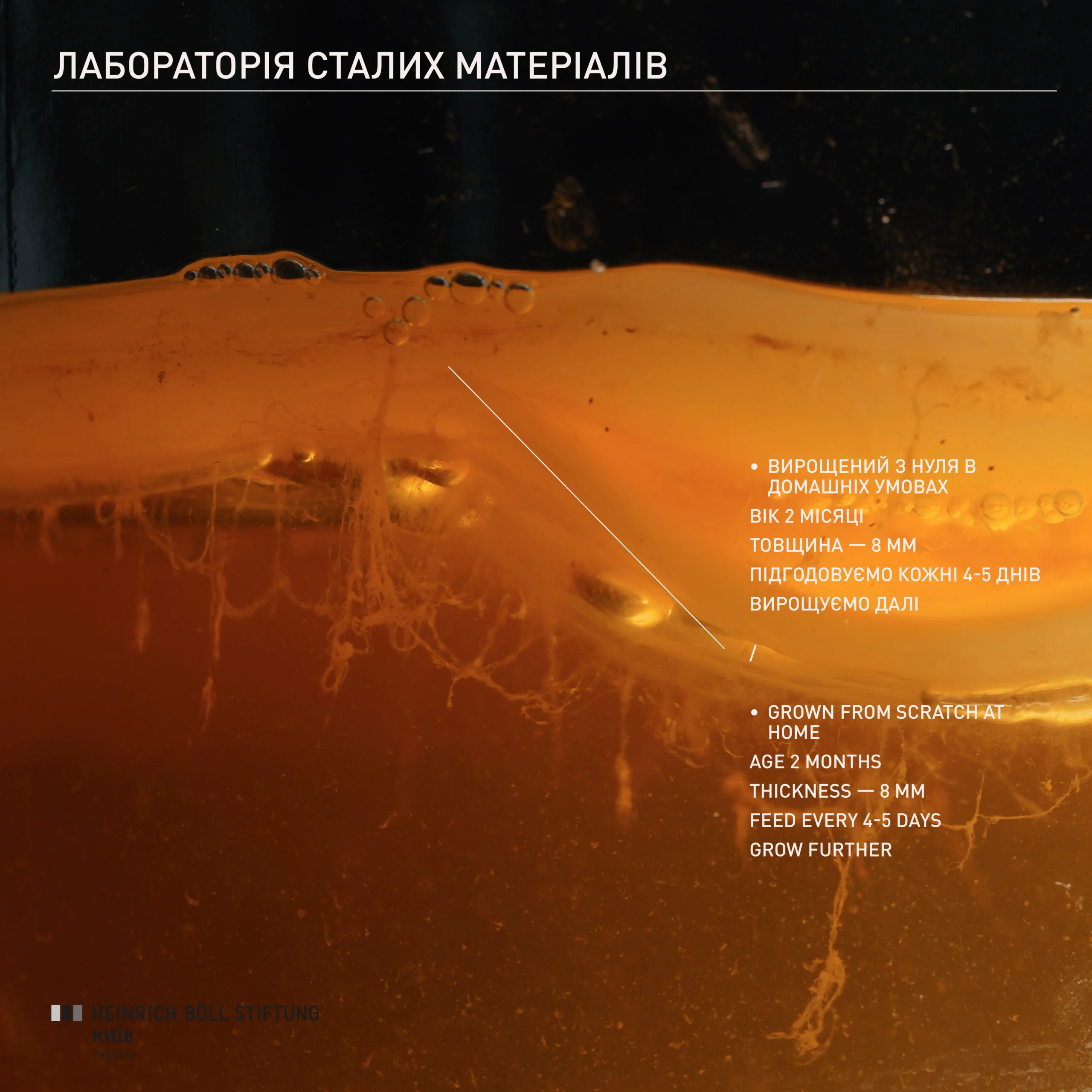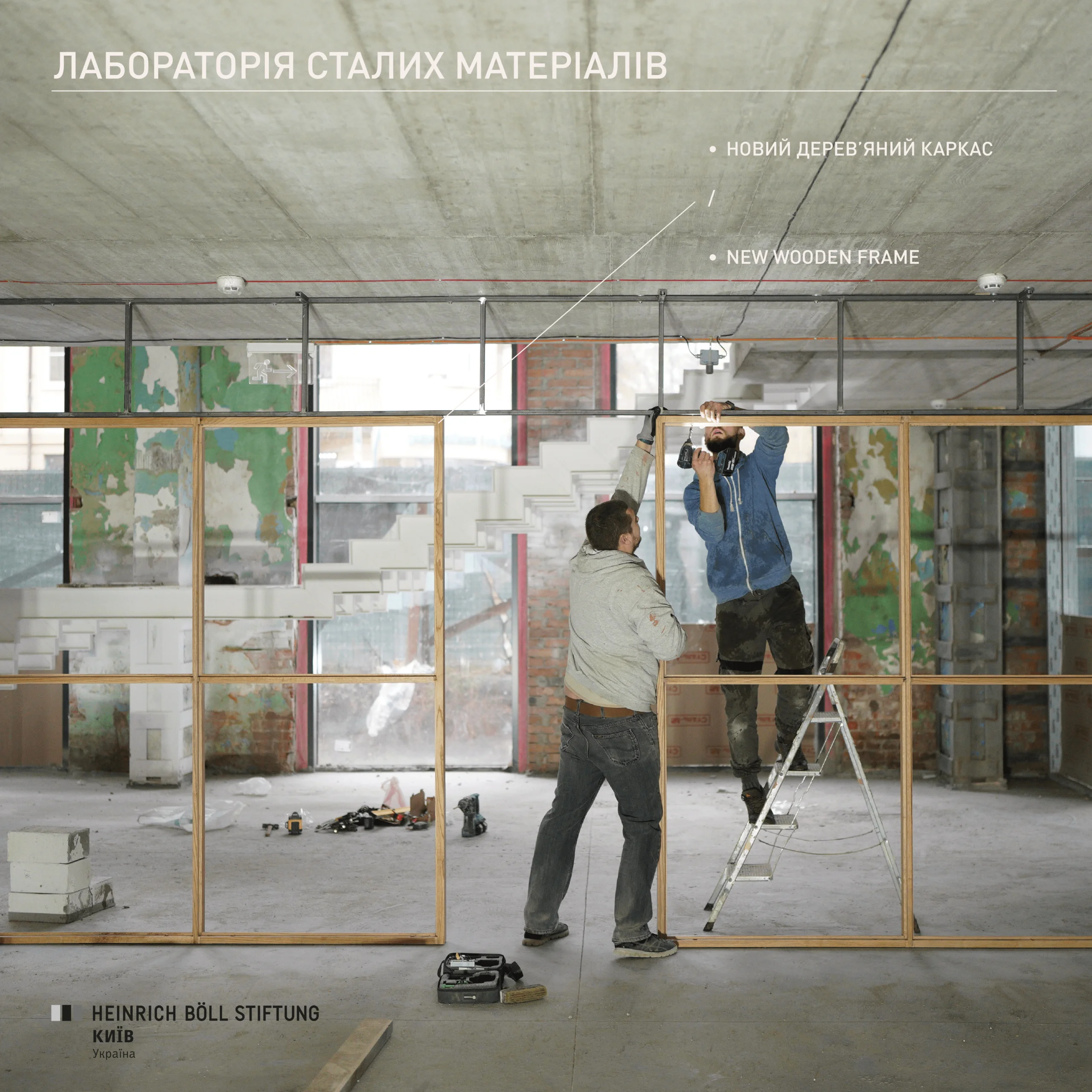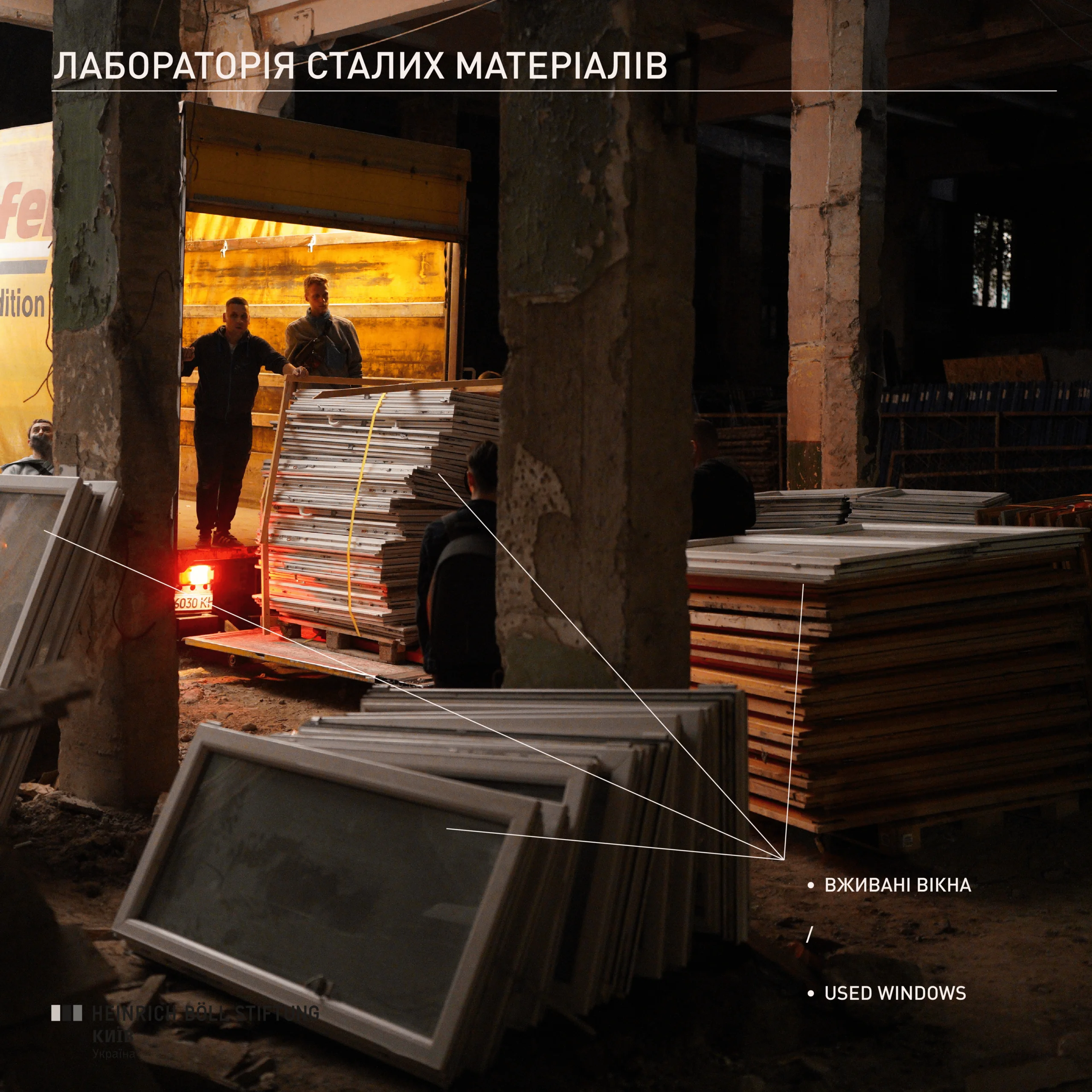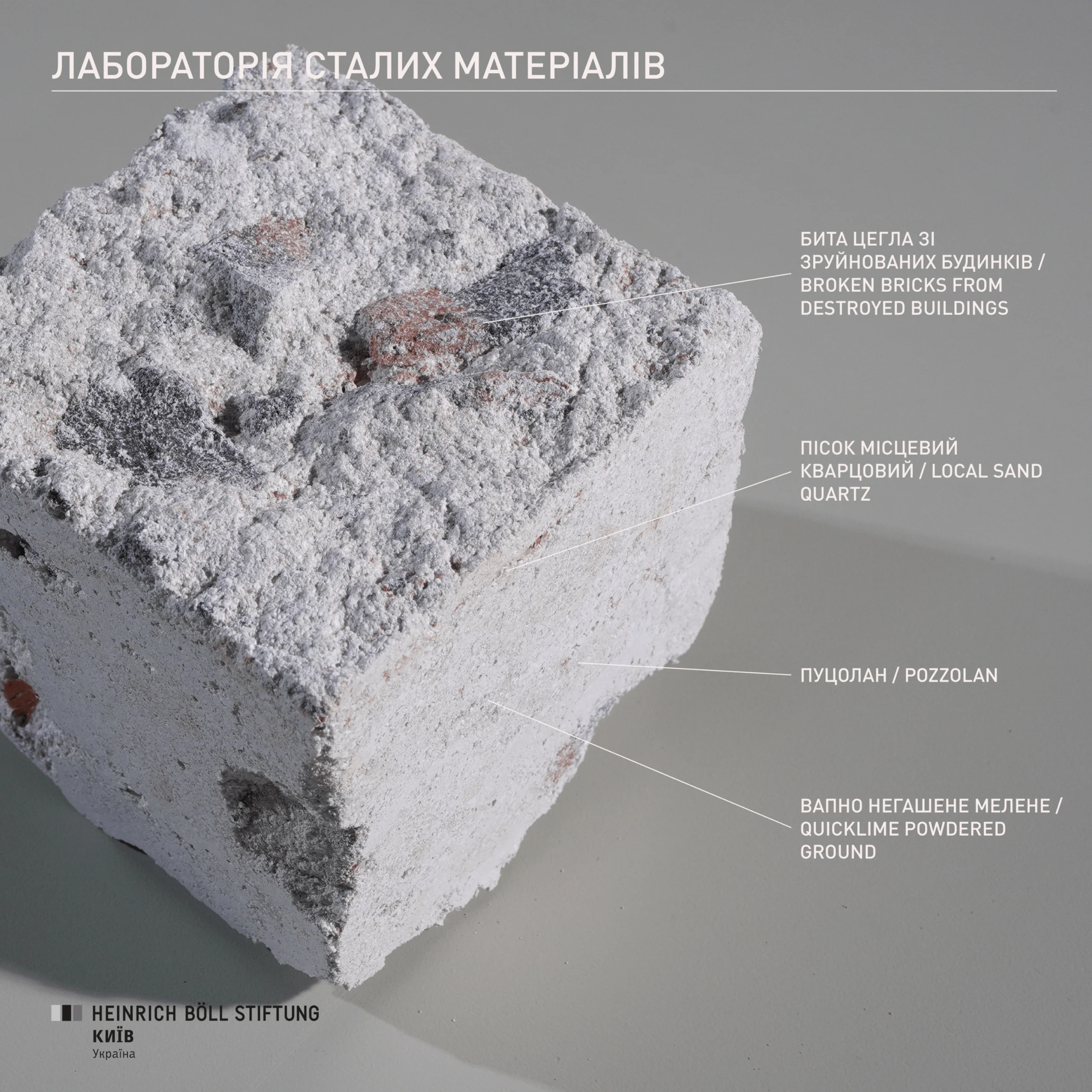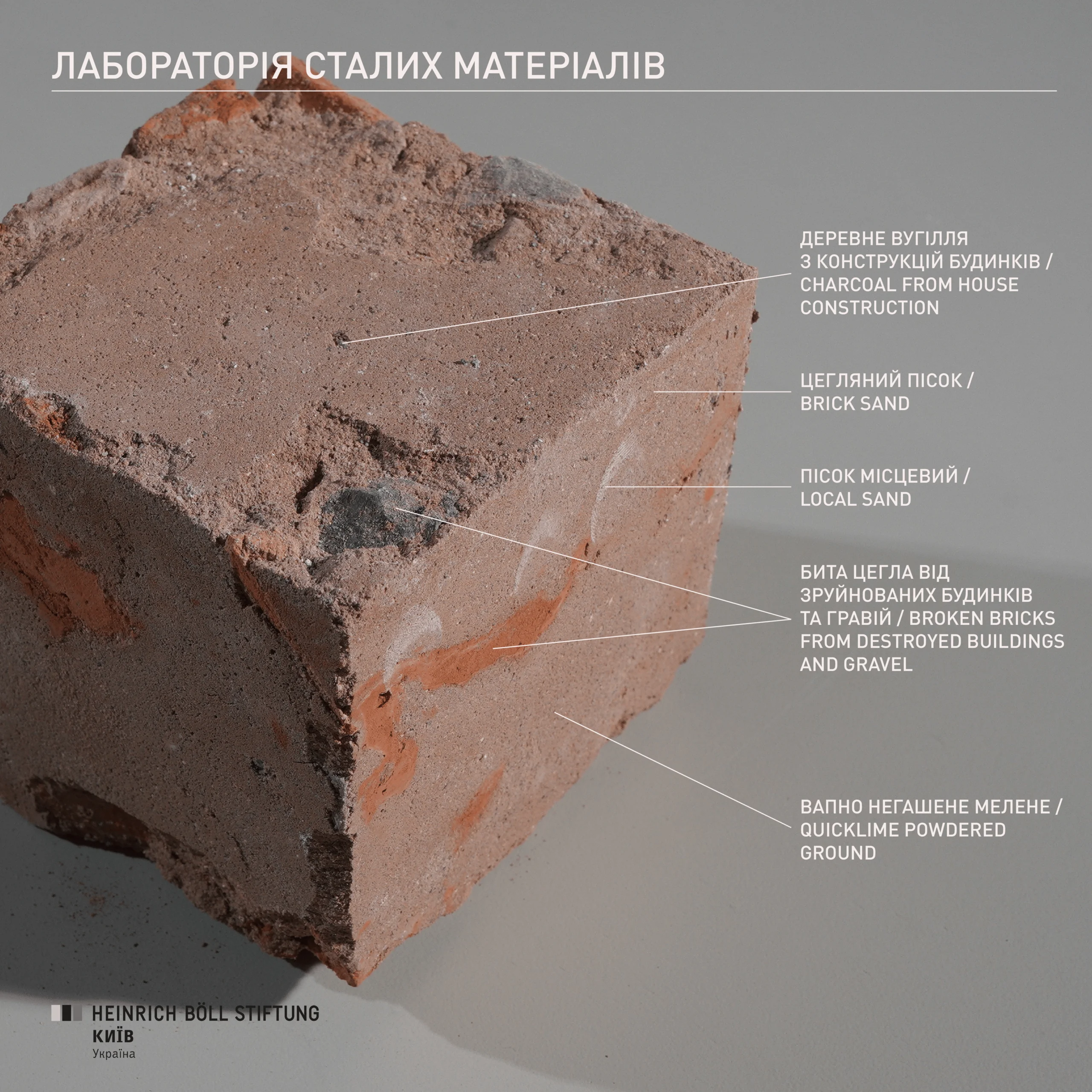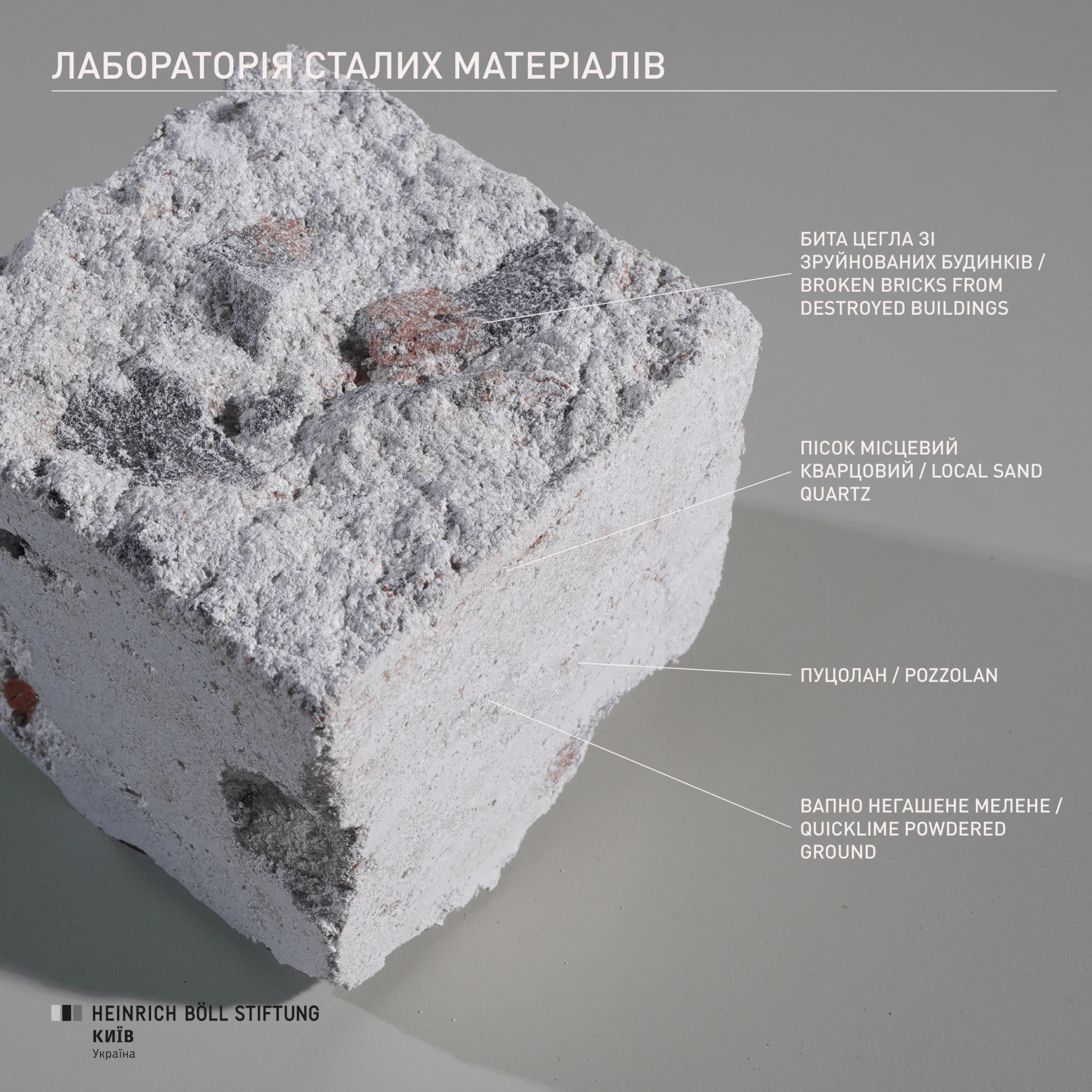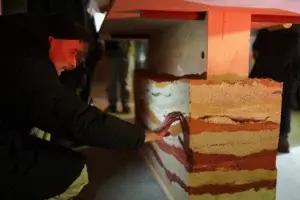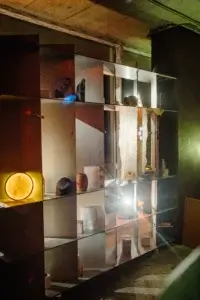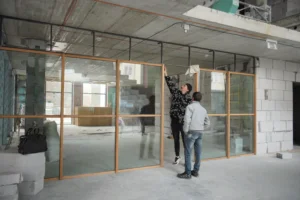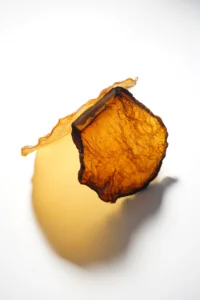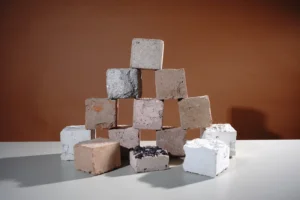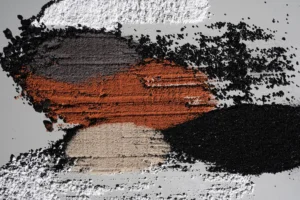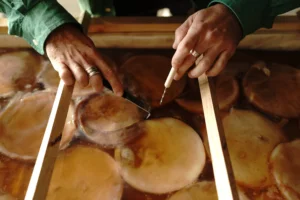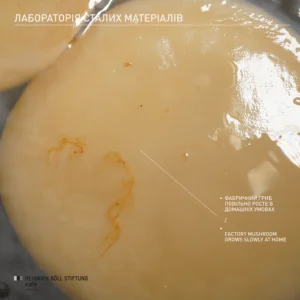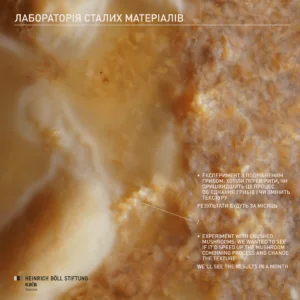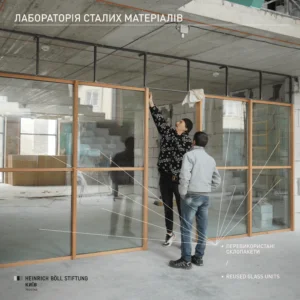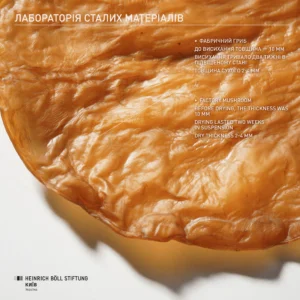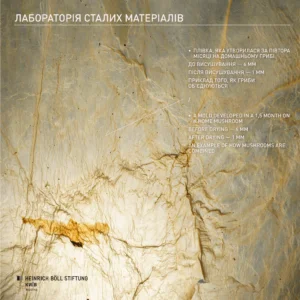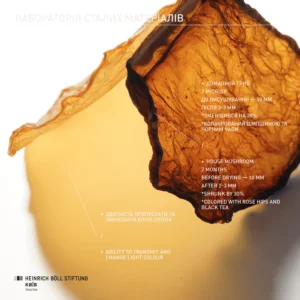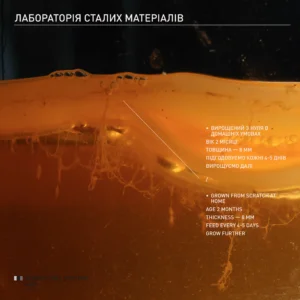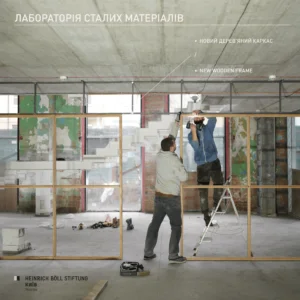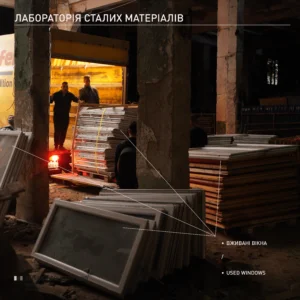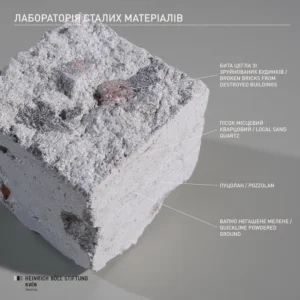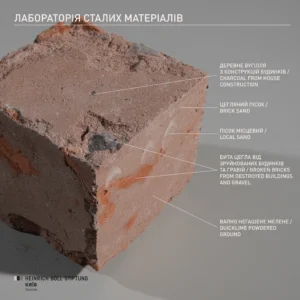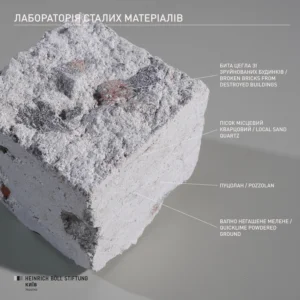The Sustainable Materials Laboratory is a harmonious part of the makerspace. The METALAB team collaborates with specialists from various industries to experiment, create and test new eco-friendly materials and make prototypes of products for construction, design, and more through workshops.
TOPIC: URBAN ECONOMY, SUSTAINABLE PRACTICES
FORMAT: research, event, education
TIME: 2023
PARTICIPANTS: Nazar Dnes’, Yaryna Onufrienko, Tania Pashynska
CURATORS: Maryana Baran, Anna Pashynska
PARTNERS: Heinrich Böll Foundation, Kyiv Office — Ukraine
Based on the makerspace, the METALAB team established a sustainable materials laboratory with a sample library, which will become a center for experiments and research on sustainable practices in construction and design.
Sustainable materials are environmentally friendly and energy efficient. Their production is focused on minimizing waste and optimizing the use of resources that are in short supply or energy-intensive and leave a carbon footprint, harm the environment, and deplete the country’s natural resources.
The sustainable materials laboratory model is highly flexible and can respond quickly and effectively to societal challenges and crises. With the right equipment, you can go through all the stages of developing a new material — from research to architecture, design, engineering, or science implementation.
This format is fundamental in the context of a full-scale war in Ukraine. Why? Researching sustainable practices in construction allows us to explore and implement innovative solutions for rebuilding housing and infrastructure. Through experiments and workshops, we can reconsider the potential of existing materials and their use, and abandon those that harm the environment and the economy. Instead, we can offer an environmentally friendly and energy-efficient alternative based on the principles of the circular economy.
Many Ukrainian production facilities for traditional building materials have been destroyed, are out of business, or are in difficulty due to the war. Instead of importing raw materials from abroad, which significantly increases the cost of construction, we want to create sustainable, renewable materials that can be utilized locally.
The team implements new sustainable materials in the makerspace to observe their performance over time. Testing samples in the laboratory allows them to verify the characteristics of materials at the design stage and avoid costly mistakes during construction.
The team has already implemented four workshops: making Roman concrete, reusing double-glazed windows, growing eco-friendly leather from kombucha, and creating objects from these materials. The results of the workshops are presented in the new makerspace.
